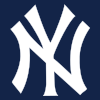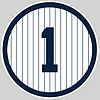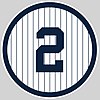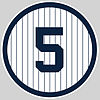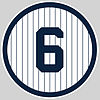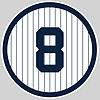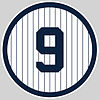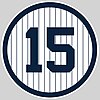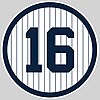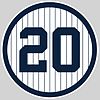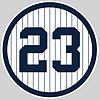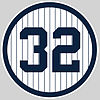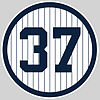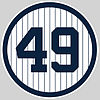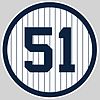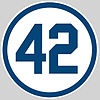| Revision as of 23:45, 5 July 2022 view sourceLuK3 (talk | contribs)Oversighters, Administrators94,913 edits →1923–1935: Sluggers and the Stadium: Ruth, Gehrig, and Murderer's Row: replace/add some refsTag: Visual edit← Previous edit | Revision as of 11:26, 6 July 2022 view source LuK3 (talk | contribs)Oversighters, Administrators94,913 edits →1923–1935: Sluggers and the Stadium: Ruth, Gehrig, and Murderer's Row: change/reformat some refsTags: nowiki added Visual editNext edit → | ||
| Line 93: | Line 93: | ||
| In the years around 1920, the Yankees, the Red Sox, and the ] had a ].<ref>{{cite web |url=https://www.baseball-reference.com/friv/trade-partners.cgi?franch_ID_1=BOS&franch_ID_2=NYY |title=Find Franchise Trade History between Boston Red Sox & New York Yankees |publisher=] |access-date=July 13, 2012 |archive-url=https://web.archive.org/web/20120830115322/http://www.baseball-reference.com/friv/trade-partners.cgi?franch_ID_1=BOS&franch_ID_2=NYY |archive-date=August 30, 2012 |url-status=live }}</ref> The trades between the three ball clubs antagonized Ban Johnson and garnered the teams the nickname "The ]".<ref>{{cite news |date=August 4, 1919 |title=Owners Of Yanks To Enjoin Johnson; Colonels Ruppert and Huston Will Carry Fight for Carl Mays Into Court. Refuse To Attend Meeting Big Baseball Battle Precipitated by Ban's Belated Action Against Former Boston Pitcher. Will Enjoin President. Statement of Owners. Parting of the Ways |work=] |url=https://www.nytimes.com/1919/08/04/archives/owners-of-yanks-to-enjoin-johnson-colonels-ruppert-and-huston-will.html |url-status=live |access-date=July 23, 2018 |archive-url=https://web.archive.org/web/20220409182940/https://www.nytimes.com/1919/08/04/archives/owners-of-yanks-to-enjoin-johnson-colonels-ruppert-and-huston-will.html |archive-date=April 9, 2022}}</ref><ref name=":3">{{Cite news |last=Stout |first=Glenn |date=July 18, 2002 |title=When the Yankees nearly moved to Boston |work=] |url=http://static.espn.go.com/mlb/s/2002/0718/1407265.html |access-date=July 5, 2022 |archive-url=https://web.archive.org/web/20160115141204/http://static.espn.go.com/mlb/s/2002/0718/1407265.html |archive-date=January 15, 2016}}</ref> This détente paid off well for the Yankees as they increased their payroll. Most new players who later contributed to the team's success came from the Red Sox, whose owner, ], was trading them for large sums of money to finance his theatrical productions.<ref>{{cite book|last=Montville|first=Leigh|title=The Big Bam: The Life and Times of Babe Ruth|publisher=Random House|year=2006|pages=101–104|author-link=Leigh Montville}}</ref><ref>{{Cite news |last=Vecsey |first=George |author-link=George Vecsey |date=September 24, 2004 |title=A Myth That Should Not Be Perpetuated |work=] |url=https://www.nytimes.com/2004/09/24/sports/baseball/a-myth-that-should-not-be-perpetuated.html |access-date=July 5, 2022 |archive-url=https://web.archive.org/web/20201112023709/https://www.nytimes.com/2004/09/24/sports/baseball/a-myth-that-should-not-be-perpetuated.html |archive-date=November 12, 2020}}</ref> Pitcher-turned-outfielder ] was the most talented of all the acquisitions from Boston, and the outcome of that trade would haunt the Red Sox for the next 86 years, a span in which the team did not win a single World Series championship.<ref>{{Cite news |last=Kepner |first=Tyler |date=October 28, 2004 |title=Red Sox Erase 86 Years of Futility in 4 Games |work=] |url=https://www.nytimes.com/2004/10/28/sports/baseball/red-sox-erase-86-years-offutility-in-4-games.html |url-status=live |access-date=July 5, 2022 |archive-url=https://web.archive.org/web/20190502132853/https://www.nytimes.com/2004/10/28/sports/baseball/red-sox-erase-86-years-offutility-in-4-games.html |archive-date=May 2, 2019 |issn=0362-4331}}</ref> This phenomenon eventually became known as the ], which was coined by writer ] in the 1990 book of the same name.<ref>{{Cite book |last=Shaughnessy |first=Dan |title=Reversing the Curse |publisher=] |year=2005 |isbn=0-618-51748-0 |pages=7–8 |language=en |author-link=Dan Shaughnessy}}</ref> | In the years around 1920, the Yankees, the Red Sox, and the ] had a ].<ref>{{cite web |url=https://www.baseball-reference.com/friv/trade-partners.cgi?franch_ID_1=BOS&franch_ID_2=NYY |title=Find Franchise Trade History between Boston Red Sox & New York Yankees |publisher=] |access-date=July 13, 2012 |archive-url=https://web.archive.org/web/20120830115322/http://www.baseball-reference.com/friv/trade-partners.cgi?franch_ID_1=BOS&franch_ID_2=NYY |archive-date=August 30, 2012 |url-status=live }}</ref> The trades between the three ball clubs antagonized Ban Johnson and garnered the teams the nickname "The ]".<ref>{{cite news |date=August 4, 1919 |title=Owners Of Yanks To Enjoin Johnson; Colonels Ruppert and Huston Will Carry Fight for Carl Mays Into Court. Refuse To Attend Meeting Big Baseball Battle Precipitated by Ban's Belated Action Against Former Boston Pitcher. Will Enjoin President. Statement of Owners. Parting of the Ways |work=] |url=https://www.nytimes.com/1919/08/04/archives/owners-of-yanks-to-enjoin-johnson-colonels-ruppert-and-huston-will.html |url-status=live |access-date=July 23, 2018 |archive-url=https://web.archive.org/web/20220409182940/https://www.nytimes.com/1919/08/04/archives/owners-of-yanks-to-enjoin-johnson-colonels-ruppert-and-huston-will.html |archive-date=April 9, 2022}}</ref><ref name=":3">{{Cite news |last=Stout |first=Glenn |date=July 18, 2002 |title=When the Yankees nearly moved to Boston |work=] |url=http://static.espn.go.com/mlb/s/2002/0718/1407265.html |access-date=July 5, 2022 |archive-url=https://web.archive.org/web/20160115141204/http://static.espn.go.com/mlb/s/2002/0718/1407265.html |archive-date=January 15, 2016}}</ref> This détente paid off well for the Yankees as they increased their payroll. Most new players who later contributed to the team's success came from the Red Sox, whose owner, ], was trading them for large sums of money to finance his theatrical productions.<ref>{{cite book|last=Montville|first=Leigh|title=The Big Bam: The Life and Times of Babe Ruth|publisher=Random House|year=2006|pages=101–104|author-link=Leigh Montville}}</ref><ref>{{Cite news |last=Vecsey |first=George |author-link=George Vecsey |date=September 24, 2004 |title=A Myth That Should Not Be Perpetuated |work=] |url=https://www.nytimes.com/2004/09/24/sports/baseball/a-myth-that-should-not-be-perpetuated.html |access-date=July 5, 2022 |archive-url=https://web.archive.org/web/20201112023709/https://www.nytimes.com/2004/09/24/sports/baseball/a-myth-that-should-not-be-perpetuated.html |archive-date=November 12, 2020}}</ref> Pitcher-turned-outfielder ] was the most talented of all the acquisitions from Boston, and the outcome of that trade would haunt the Red Sox for the next 86 years, a span in which the team did not win a single World Series championship.<ref>{{Cite news |last=Kepner |first=Tyler |date=October 28, 2004 |title=Red Sox Erase 86 Years of Futility in 4 Games |work=] |url=https://www.nytimes.com/2004/10/28/sports/baseball/red-sox-erase-86-years-offutility-in-4-games.html |url-status=live |access-date=July 5, 2022 |archive-url=https://web.archive.org/web/20190502132853/https://www.nytimes.com/2004/10/28/sports/baseball/red-sox-erase-86-years-offutility-in-4-games.html |archive-date=May 2, 2019 |issn=0362-4331}}</ref> This phenomenon eventually became known as the ], which was coined by writer ] in the 1990 book of the same name.<ref>{{Cite book |last=Shaughnessy |first=Dan |title=Reversing the Curse |publisher=] |year=2005 |isbn=0-618-51748-0 |pages=7–8 |language=en |author-link=Dan Shaughnessy}}</ref> | ||
| Ruth's multitude of home runs proved so popular that the Yankees began drawing more people than their National League counterpart, the Giants.<ref name=":3" /> In 1921 — the year after acquiring Ruth — the ] played in their ].<ref>{{Cite web |last=Schumach |first=Murray |date=August 17, 1948 |title=Babe Ruth, Baseball's Great Star and Idol of Children, Had a Career Both Dramatic and Bizarre |url=https://archive.nytimes.com/www.nytimes.com/learning/general/onthisday/bday/0206.html |url-status=live |archive-url=https://web.archive.org/web/20181215225306/https://archive.nytimes.com/www.nytimes.com/learning/general/onthisday/bday/0206.html |archive-date=December 15, 2018 |access-date=July 5, 2022 |website=]}}</ref><ref name=":7">{{Cite web |title=1921 MLB Season History – Major League Baseball |url=http://www.espn.com/mlb/history/season/_/year/1921 |url-status=live |archive-url=https://web.archive.org/web/20190502132841/http://www.espn.com/mlb/history/season/_/year/1921 |archive-date=May 2, 2019 |access-date=July 5, 2022 |website=]}}</ref> They competed against the ],<ref>{{Cite news |last=Hanna |first=William |date=October 5, 1921 |title=Teams in Final Drill on Eve of World Series |pages=6 |work=] |url=https://www.newspapers.com/image/471541313/ |url-access=subscription |access-date=July 5, 2022 |via=]}}</ref> and all eight games of the series were played in the Polo Grounds.<ref>{{Cite news |date=October 13, 1921 |title=Giants Win Series |pages=1 |work=] |agency=] |url=https://www.newspapers.com/image/75752079/ |url-access=subscription |access-date=July 5, 2022 |via=]}}</ref> After the 1922 season, the Yankees were told to move out of the Polo Grounds.<ref name=":5">{{Cite news |last=Spector |first=Jesse |date=September 21, 2008 |title=Touching Base: Yankees had homes before becoming Bronx Bombers |work=] |url=https://www.nydailynews.com/sports/baseball/yankees/touching-base-yankees-homes-bronx-bombers-article-1.324015 |access-date=July 5, 2022 |archive-url=https://web.archive.org/web/20190502132853/https://www.nydailynews.com/sports/baseball/yankees/touching-base-yankees-homes-bronx-bombers-article-1.324015 |archive-date=May 2, 2019}}</ref> Giants manager ] was said to have commented that the Yankees should "move to some out-of-the-way place, like Queens",{{ |
Ruth's multitude of home runs proved so popular that the Yankees began drawing more people than their National League counterpart, the Giants.<ref name=":3" /> In 1921 — the year after acquiring Ruth — the ] played in their ].<ref>{{Cite web |last=Schumach |first=Murray |date=August 17, 1948 |title=Babe Ruth, Baseball's Great Star and Idol of Children, Had a Career Both Dramatic and Bizarre |url=https://archive.nytimes.com/www.nytimes.com/learning/general/onthisday/bday/0206.html |url-status=live |archive-url=https://web.archive.org/web/20181215225306/https://archive.nytimes.com/www.nytimes.com/learning/general/onthisday/bday/0206.html |archive-date=December 15, 2018 |access-date=July 5, 2022 |website=]}}</ref><ref name=":7">{{Cite web |title=1921 MLB Season History – Major League Baseball |url=http://www.espn.com/mlb/history/season/_/year/1921 |url-status=live |archive-url=https://web.archive.org/web/20190502132841/http://www.espn.com/mlb/history/season/_/year/1921 |archive-date=May 2, 2019 |access-date=July 5, 2022 |website=]}}</ref> They competed against the ],<ref>{{Cite news |last=Hanna |first=William |date=October 5, 1921 |title=Teams in Final Drill on Eve of World Series |pages=6 |work=] |url=https://www.newspapers.com/image/471541313/ |url-access=subscription |access-date=July 5, 2022 |via=]}}</ref> and all eight games of the series were played in the Polo Grounds.<ref>{{Cite news |date=October 13, 1921 |title=Giants Win Series |pages=1 |work=] |agency=] |url=https://www.newspapers.com/image/75752079/ |url-access=subscription |access-date=July 5, 2022 |via=]}}</ref> After the 1922 season, the Yankees were told to move out of the Polo Grounds.<ref name=":5">{{Cite news |last=Spector |first=Jesse |date=September 21, 2008 |title=Touching Base: Yankees had homes before becoming Bronx Bombers |work=] |url=https://www.nydailynews.com/sports/baseball/yankees/touching-base-yankees-homes-bronx-bombers-article-1.324015 |access-date=July 5, 2022 |archive-url=https://web.archive.org/web/20190502132853/https://www.nydailynews.com/sports/baseball/yankees/touching-base-yankees-homes-bronx-bombers-article-1.324015 |archive-date=May 2, 2019}}</ref> Giants manager ] was said to have commented that the Yankees should "move to some out-of-the-way place, like Queens",<ref>{{Cite book |last=Healey |first=Mark |url=https://books.google.com/books?id=kmPVDwAAQBAJ&pg=PT59&lpg=PT59&dq=John+McGraw+%22move+to+some+out-of-the-way+place,+like+Queens%22&source=bl&ots=9kkFK_qq8E&sig=ACfU3U0VClmJAn767vyGK1M2e1lHkXoFJA&hl=en&sa=X&ved=2ahUKEwjBwsCYkOT4AhWdkokEHfA2DDoQ6AF6BAgXEAM#v=onepage&q=John%20McGraw%20%22move%20to%20some%20out-of-the-way%20place%2C%20like%20Queens%22&f=false |title=Gotham Baseball: New York's All-Time Team |publisher=] |year=2021 |isbn=9781439669563 |language=en}}</ref> but they instead broke ground for a new ballpark in ], right across the ] from the Polo Grounds.<ref>{{Cite news |date=February 6, 1921 |title=Yankee Stadium on North Bank of Harlem River |pages=45 |work=] |url=https://www.newspapers.com/image/334685595/ |url-access=subscription |access-date=July 5, 2022 |via=]}}</ref> In 1922, the ] returned to the ] again and were dealt a second defeat at the hands of the ].<ref>{{Cite web |title=1922 MLB Season History – Major League Baseball – ESPN |url=http://www.espn.com/mlb/history/season/_/year/1922 |url-status=live |archive-url=https://web.archive.org/web/20190502132843/http://www.espn.com/mlb/history/season/_/year/1922 |archive-date=May 2, 2019 |access-date=July 5, 2022 |website=]}}</ref> Manager ] and general manager ] were important newcomers in this period.<ref>{{Cite news |date=April 10, 1928 |title=Huggins Still in Dark on Shocker's Return; Says He Has Received No Word From Pitcher |pages=24 |work=] |url=https://www.nytimes.com/1928/04/10/archives/huggins-still-in-dark-on-shockers-return-says-he-has-received-no.html |access-date=July 6, 2022 |archive-url=https://web.archive.org/web/20180227190832/https://www.nytimes.com/1928/04/10/archives/huggins-still-in-dark-on-shockers-return-says-he-has-received-no.html |archive-date=February 27, 2018}}</ref> The hiring of Huggins by Ruppert in 1918 caused a rift between the owners that eventually led to Ruppert buying Huston out in 1923.<ref>{{Cite book |last1=Spatz |first1=Lyle |url= |title=Bridging Two Dynasties: The 1947 New York Yankees |date=April 2013 |publisher=] |year=2013 |isbn=9780803240940 |pages=1}}</ref> | ||
| ] was the first Yankees player to have his number retired, in 1939, which was the same year that he retired from baseball due to a crippling disease.]] | ] was the first Yankees player to have his number retired, in 1939, which was the same year that he retired from baseball due to a crippling disease.]] | ||
| In 1923, the Yankees moved to their new home, ],<ref>{{Cite |
In 1923, the Yankees moved to their new home, ],<ref>{{Cite news |last=Durant |first=John |date=April 22, 1923 |title=April 1923: First Day at Yankee Stadium |work=] |url=https://vault.si.com/vault/1963/04/22/april-1923-first-day-at-yankee-stadium |access-date=July 6, 2022 |archive-url=https://web.archive.org/web/20220418234832/https://vault.si.com/vault/1963/04/22/april-1923-first-day-at-yankee-stadium |archive-date=April 18, 2022}}</ref><nowiki> which took 11 months to build and cost $2.5 million ({{. The team announced that 99,200 fans showed up on Opening Day and 25,000 were turned away.</nowiki><ref>{{Cite news|url=https://www.nytimes.com/times-insider/2014/04/18/april-18-1923-yankee-stadium-opens-to-public/|title=April 18, 1923: Yankee Stadium Opens to Public|last=Allen|first=Erika|date=2014-04-18|work=The New York Times|access-date=2019-05-15|issn=0362-4331|archive-url=https://web.archive.org/web/20140421055307/http://www.nytimes.com/times-insider/2014/04/18/april-18-1923-yankee-stadium-opens-to-public/|archive-date=April 21, 2014|url-status=live}}</ref> In the first game at Yankee Stadium, Ruth hit a home run.<ref>{{Cite web|url=http://sports.espn.go.com/espn/wire?section=mlb&id=1903102|title=Babe Ruth's first Yankee Stadium home run bat up for auction|website=ESPN.com|access-date=2019-05-15|archive-url=https://web.archive.org/web/20050131213244/http://sports.espn.go.com/espn/wire?section=mlb&id=1903102|archive-date=January 31, 2005|url-status=live}}</ref> The stadium was nicknamed "The House That Ruth Built", due mainly to the fact that Ruth had doubled Yankees' attendance, which helped the team pay for the new stadium.<ref>{{Cite news|url=https://www.nytimes.com/1976/04/11/archives/the-house-that-ruth-built-rebuilt.html|title=The House That Ruth Built—rebuilt|last=Smith|first=Red|date=1976-04-11|work=The New York Times|access-date=2019-05-15|issn=0362-4331}}</ref> At the end of the season, the ] faced the ] in the ] for the third straight year and won their first championship.<ref>{{Cite web|url=http://www.espn.com/new-york/mlb/story/_/id/10343362|title=Ruth's '23 World Series watch up for auction|date=2014-01-24|website=ESPN.com|access-date=2019-05-15}}</ref> | ||
| In the 1927 ], the ] featured a lineup that became known as "]", and some consider this team to be the best in the history of baseball (though similar claims have been made for other Yankee squads, notably those of 1939, 1961 and 1998).<ref name=1927best>{{cite web|last=Koppett|first=Leonard|title=1927 "Murderers' Row" New York Yankees: No Team Has Ever Been Better|url=http://www.baseballhalloffame.org/history/2002/1927_murderers_row.htm|publisher=National Baseball Hall of Fame|access-date=June 4, 2007|archive-url=https://web.archive.org/web/20070407214215/http://www.baseballhalloffame.org/history/2002/1927_murderers_row.htm|archive-date=April 7, 2007|url-status=dead|df=mdy-all}}</ref> | In the 1927 ], the ] featured a lineup that became known as "]", and some consider this team to be the best in the history of baseball (though similar claims have been made for other Yankee squads, notably those of 1939, 1961 and 1998).<ref name=1927best>{{cite web|last=Koppett|first=Leonard|title=1927 "Murderers' Row" New York Yankees: No Team Has Ever Been Better|url=http://www.baseballhalloffame.org/history/2002/1927_murderers_row.htm|publisher=National Baseball Hall of Fame|access-date=June 4, 2007|archive-url=https://web.archive.org/web/20070407214215/http://www.baseballhalloffame.org/history/2002/1927_murderers_row.htm|archive-date=April 7, 2007|url-status=dead|df=mdy-all}}</ref> | ||
Revision as of 11:26, 6 July 2022
Major League Baseball franchise in New York City "Yankees" redirects here. For other uses, see New York Yankees (disambiguation) and Yankee (disambiguation). "Bronx Bombers" redirects here. For the theatrical play, see Bronx Bombers (play).
| New York Yankees | |||||
|---|---|---|---|---|---|
| |||||
| |||||
| Major league affiliations | |||||
| |||||
| Current uniform | |||||
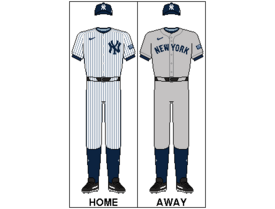 | |||||
| Retired numbers | |||||
| Colors | |||||
| |||||
| Name | |||||
| Other nicknames | |||||
| |||||
| Ballpark | |||||
| |||||
| Major league titles | |||||
| World Series titles (27) | |||||
| AL Pennants (40) | |||||
| AL East Division titles (19) | |||||
| Wild card berths (9) | |||||
| Front office | |||||
| Principal owner(s) | Yankee Global Enterprises (Hal Steinbrenner chairman) | ||||
| President | Randy Levine | ||||
| General manager | Brian Cashman | ||||
| Manager | Aaron Boone | ||||
The New York Yankees are an American professional baseball team based in the New York City borough of The Bronx. The Yankees compete in Major League Baseball (MLB) as a member club of the American League (AL) East division. They are one of two major league clubs based in New York City, the other being the National League's (NL) New York Mets. The Yankees began play in the 1901 season as the Baltimore Orioles (no relation to the modern Baltimore Orioles). In 1903, Frank Farrell and Bill Devery purchased the franchise after it ceased operations and moved it to New York City, renaming the club the New York Highlanders. The Highlanders were officially renamed the New York Yankees in 1913.
The team is owned by Yankee Global Enterprises, a limited liability company that is controlled by the family of the late George Steinbrenner, who purchased the team in 1973. Brian Cashman is the team's general manager, and Aaron Boone is the team's field manager. The team's home games were played at the original Yankee Stadium in the Bronx from 1923 to 1973 and from 1976 to 2008. In 1974 and 1975, the Yankees shared Shea Stadium with the Mets, in addition to the New York Jets and the New York Giants. In 2009, they moved into a new ballpark of the same name that was constructed adjacent to the previous facility, which was closed and demolished. The team is perennially among the leaders in MLB attendance.
Arguably the most successful professional sports team in the United States, the Yankees have won 19 American League East Division titles, 40 American League pennants, and 27 World Series championships, all of which are MLB records. The team has won more titles than any other franchise in the four major North American sports leagues, after briefly trailing the NHL's Montreal Canadiens in the 1990s. The Yankees have had 44 players and 11 managers inducted into the National Baseball Hall of Fame, including Babe Ruth, Lou Gehrig, Joe DiMaggio, Mickey Mantle, Yogi Berra, Whitey Ford, Mariano Rivera, and Derek Jeter, with Rivera and Jeter having the two highest vote percentages of all Hall of Fame members. According to Forbes, the Yankees are the second-highest valued sports franchise in the United States and the second in the world, with an estimated value in 2022 of approximately $6 billion. The team has garnered enormous popularity and a dedicated fanbase, as well as widespread enmity from fans of other MLB teams. The team's rivalry with the Boston Red Sox is one of the most well-known rivalries in North American sports.
From 1903 to 2022, the Yankees' overall win–loss record is 10,561–7,959 (a .570 winning percentage).
History
Main article: History of the New York Yankees1901–1902: Origins in Baltimore
In 1900, Ban Johnson, the president of a minor league known as the Western League (1894–1899), changed the Western League name to the American League (AL) and asked the National League to classify it as a major league. Johnson held that his league would operate in friendly terms with the National League, but the National League ridiculed the plan. Johnson declared official major league status for his league in 1901.
Plans to add a team in New York City were blocked by the NL's New York Giants. A team was instead placed in Baltimore, Maryland, in 1901 named the Orioles. Between 1901 and 1903, many players and coaches on the Orioles roster jumped to the Giants. In early 1903, the two leagues decided to settle their disputes and try to co-exist. At a conference, Johnson requested that an AL team be put in New York, to play alongside the NL's Giants. It was put to a vote, and 15 of the 16 major league owners agreed on it. The Orioles' new owners, Frank J. Farrell and William S. Devery moved the team to New York in 1903.
1903–1912: Move to New York and the Highlanders years

The team's new ballpark, Hilltop Park (formally known as "American League Park"), was constructed in one of Upper Manhattan's highest points—between 165th and 168th Streets in the Washington Heights neighborhood. The team was named the New York Highlanders. Fans believed the name was chosen because of the team's elevated location in Upper Manhattan, or as a nod to team president Joseph Gordon's Scottish-Irish heritage (the Gordon Highlanders were a well known Scottish military unit).
Initially, the team was commonly referred to as the New York Americans. The team was also referred to as the "Invaders" in the Evening Journal and The Evening World. New York Press Sports Editor Jim Price coined the unofficial nickname Yankees (or "Yanks") for the club as early as 1904, because it was easier to fit in headlines.
The Highlanders finished second in the AL in 1904, 1906, and 1910. In 1904, they lost the deciding game on a wild pitch to the Boston Americans, who later became the Boston Red Sox. That year, Highlander pitcher Jack Chesbro set the single-season wins record at 41. At this time there was no formal World Series agreement wherein the AL and NL winners would play each other.
1913–1922: New owners, a new home, and a new name: Years at the Polo Grounds

The Polo Grounds, located on the shore of the Harlem River in Washington Heights, was home to the New York Giants of the National League. The Giants were inter-city rivals with the Highlanders, dating back to when Giants manager John McGraw feuded with Ban Johnson after McGraw jumped from the Orioles to the Giants. Polo Grounds III burned down in 1911 and the Highlanders shared Hilltop Park with the Giants during a two-month renovation period. Later, from 1913 to 1922, the Highlanders shared the Polo Grounds with the Giants after their lease with Hilltop Park expired. While playing at the Polo Grounds, the name "Highlanders" fell into disuse among the press. In 1913 the team became officially known as the New York Yankees.
In the mid‑1910s, the Yankees finished towards the bottom of the standings. The relationship between Farrell and Devery became strained due to money issues and the team performance. At the start of 1915, the pair sold the team to Colonel Jacob Ruppert, a brewer, and Captain Tillinghast L'Hommedieu Huston, a contractor-engineer. Ruppert and Huston paid $350,000 (equivalent to $9,375,000 in 2021) with both men contributing half of the total price. After the purchase, Ruppert assumed the role of team president with Huston becoming team secretary and treasurer.
1923–1935: Sluggers and the Stadium: Ruth, Gehrig, and Murderer's Row

In the years around 1920, the Yankees, the Red Sox, and the Chicago White Sox had a détente. The trades between the three ball clubs antagonized Ban Johnson and garnered the teams the nickname "The Insurrectos". This détente paid off well for the Yankees as they increased their payroll. Most new players who later contributed to the team's success came from the Red Sox, whose owner, Harry Frazee, was trading them for large sums of money to finance his theatrical productions. Pitcher-turned-outfielder Babe Ruth was the most talented of all the acquisitions from Boston, and the outcome of that trade would haunt the Red Sox for the next 86 years, a span in which the team did not win a single World Series championship. This phenomenon eventually became known as the Curse of the Bambino, which was coined by writer Dan Shaughnessy in the 1990 book of the same name.
Ruth's multitude of home runs proved so popular that the Yankees began drawing more people than their National League counterpart, the Giants. In 1921 — the year after acquiring Ruth — the Yankees played in their first World Series. They competed against the Giants, and all eight games of the series were played in the Polo Grounds. After the 1922 season, the Yankees were told to move out of the Polo Grounds. Giants manager John McGraw was said to have commented that the Yankees should "move to some out-of-the-way place, like Queens", but they instead broke ground for a new ballpark in the Bronx, right across the Harlem River from the Polo Grounds. In 1922, the Yankees returned to the World Series again and were dealt a second defeat at the hands of the Giants. Manager Miller Huggins and general manager Ed Barrow were important newcomers in this period. The hiring of Huggins by Ruppert in 1918 caused a rift between the owners that eventually led to Ruppert buying Huston out in 1923.
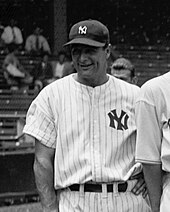
In 1923, the Yankees moved to their new home, Yankee Stadium, which took 11 months to build and cost $2.5 million ({{. The team announced that 99,200 fans showed up on Opening Day and 25,000 were turned away. In the first game at Yankee Stadium, Ruth hit a home run. The stadium was nicknamed "The House That Ruth Built", due mainly to the fact that Ruth had doubled Yankees' attendance, which helped the team pay for the new stadium. At the end of the season, the Yankees faced the Giants in the World Series for the third straight year and won their first championship.
In the 1927 season, the Yankees featured a lineup that became known as "Murderers' Row", and some consider this team to be the best in the history of baseball (though similar claims have been made for other Yankee squads, notably those of 1939, 1961 and 1998).
That season, the Yankees became the first team in baseball to occupy first place every day of the season, winning 110 games. The team also swept the Pittsburgh Pirates in the World Series. Ruth's home run total of 60 in 1927 set a single-season home run record that stood until it was broken by Roger Maris in 1961, although Maris had eight additional games in which to break the record. Meanwhile, first baseman Lou Gehrig had his first big season, batting .373 with 47 home runs and 175 runs batted in (RBI), beating Ruth's single-season RBI mark (which he had set in 1921). The Yankees won the World Series again in 1928.
In 1931, Joe McCarthy was hired as manager and brought the Yankees back to the top of the AL. They swept the Chicago Cubs in the 1932 World Series, and brought the team's streak of consecutive World Series game wins to 12. This series was made famous by Babe Ruth's "Called Shot" in game three of the series at Wrigley Field, a fitting "swan song" to his illustrious World Series career. In 1935, Ruth left the Yankees to join the NL's Boston Braves, and he made his last major league baseball appearance on May 30 of that year.
1936–1951: Joltin' Joe DiMaggio
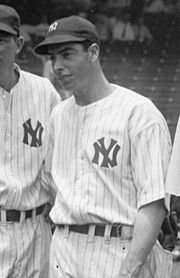
After Ruth left the Yankees following the 1934 season, Gehrig finally had a chance to take center stage, but it was only one year before a new star appeared, Joe DiMaggio. The team won an unprecedented four straight World Series titles from 1936 to 1939. For most of 1939, however, they had to do it without Gehrig, who took himself out of the lineup on May 2 and retired due to amyotrophic lateral sclerosis, which was later known as "Lou Gehrig's Disease" in his memory. The Yankees declared July 4, 1939 to be "Lou Gehrig Day", on which they retired his number 4, the first retired number in baseball. Gehrig made a famous speech in which he declared himself to be "the luckiest man on the face of the earth." He died two years later on June 2, 1941.
The 1941 season was often described as the last year of the "Golden Era" before the United States entered World War II and other realities intervened. It was a thrilling year as America watched two major events unfold: Ted Williams of the Red Sox hitting for the elusive .400 batting average and Joe DiMaggio getting hits in consecutive ballgames. By the end of his hitting streak, DiMaggio hit in 56 consecutive games, the current major league record and one often deemed unbreakable.
Two months after the Yankees beat the Brooklyn Dodgers in the 1941 World Series—the first of seven October meetings between the two crosstown rivals before the Dodgers moved to Los Angeles—the United States naval fleet was attacked at Pearl Harbor by the Empire of Japan, and many of their best players, including DiMaggio, entered the military during World War II. The Yankees still managed to pull out a win against the St. Louis Cardinals in the 1943 World Series.
In 1945 construction magnate Del Webb and partners Dan Topping and Larry MacPhail purchased the team from the Ruppert estate for $2.8 million; MacPhail was bought out in 1947.
After a few slumping seasons, McCarthy was fired early in 1946. A few interim managers later, Bucky Harris took the job, righting the ship and taking the Yankees to a hard-fought series victory against the Dodgers.
Despite finishing only three games behind the Cleveland Indians in the 1948 pennant race, Harris was relieved of his duties and replaced by Casey Stengel, who had a reputation of being a clown and managing bad teams. His tenure as Yankees' field manager, however, was marked with success. The "underdog" Yankees came from behind to catch and surprise a powerful Red Sox team on the last two days of the 1949 season, a face-off that fueled the beginning of the modern Yankees–Red Sox rivalry. By this time, however, DiMaggio's career was winding down, and the "Yankee Clipper" retired after the 1951 season. This year marked the arrival of the "Oklahoma Kid", Mickey Mantle, who was one of several new stars to fill the gap.
1951–1959: Stengel's Squad
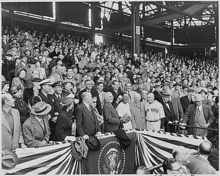
Bettering the clubs managed by Joe McCarthy, the Yankees won the World Series five consecutive times from 1949–1953 under Stengel, which remains an MLB record. Led by players like center fielder Mickey Mantle, pitcher Whitey Ford, and catcher Yogi Berra, Stengel's teams won ten pennants and seven World Series titles in his 12 seasons as the Yankees manager. The 1950 title was the only one of those five championships not to be won against either the New York Giants or Brooklyn Dodgers; it was won in four straight games against the Whiz Kids of the Philadelphia Phillies.
In 1954, the Yankees won 103 games, but the Cleveland Indians took the pennant with a then-AL record 111 wins; 1954 was famously referred to as The Year the Yankees Lost the Pennant. In 1955, the Dodgers finally beat the Yankees in the World Series, after five previous Series losses to them. The Yankees came back strong the next year. In Game 5 of the 1956 World Series against the Dodgers, pitcher Don Larsen threw the only perfect game in World Series history, which remains the only perfect game in postseason play and the only postseason no-hitter until 2010.
The Yankees lost the 1957 World Series to the Milwaukee Braves when Lew Burdette incredibly won three games for the Braves. Following the Series, the New York Giants and the Brooklyn Dodgers both left for San Francisco and Los Angeles, respectively. This left the Yankees as New York's only baseball team. In the 1958 World Series, the Yankees got their revenge against the Braves and became the second team to win the Series after being down 3–1. For the decade, the Yankees won six World Series championships (1950, 1951, 1952, 1953, 1956, 1958) and eight American League pennants (those six plus 1955 and 1957). Led by Mantle, Ford, Berra, Elston Howard (the Yankees' first African-American player), and the newly acquired Roger Maris, the Yankees entered the 1960s seeking to replicate their success of the 1950s.
1960–1964: Mantle and Maris

Arnold Johnson, owner of the Kansas City Athletics, was a longtime business associate of then-Yankees co-owners Del Webb and Dan Topping. Because of this "special relationship" with the Yankees, he traded young players to them in exchange for cash and aging veterans. Invariably, these trades ended up being heavily tilted in the Yankees' favor, leading to accusations that the Athletics were little more than a Yankees farm team at the major league level. Kansas City had been home to the Yankees' top farm team for almost 20 years before the Athletics moved there from Philadelphia in 1954.
In 1960, Charles O. Finley purchased the Athletics and put an end to the trades. At that point, however, the Yankees had already strengthened their supply of future prospects, which included a young outfielder named Roger Maris. In 1960, Maris led the league in slugging percentage, RBI, and extra-base hits. He finished second in home runs (one behind Mickey Mantle) and total bases, and won a Gold Glove, which garnered enough votes for the American League MVP award.
The year 1961 was one of the most memorable in Yankees history. Mantle and Maris hit home runs at a fast pace and became known as the "M&M Boys". Ultimately, a severe hip infection forced Mantle to leave the lineup. Maris continued though, and on October 1, the last day of the regular season, he hit home run number 61, surpassing Babe Ruth's single-season home run record of 60. However, MLB Commissioner Ford Frick (who, as it was discovered later, had ghostwritten for Babe Ruth during his career) decreed that since Maris had played in a 162-game season, and Ruth (in 1927) had played in a 154-game season, two separate records would be kept for 30 years, until MLB reversed course and Maris held the record alone. His record would be broken by Mark McGwire, who hit 70 home runs in 1998. Maris still holds the American League record.
The Yankees won the pennant with a 109–53 record and went on to defeat the Cincinnati Reds in the 1961 World Series. The team finished the year with a record 240 home runs.
In 1962, the sports scene in New York changed when the National League added an expansion team, the New York Mets, who played at the Giants' former home, the Polo Grounds, for two seasons while Shea Stadium was under construction in nearby Flushing, Queens. This restored New York as a city with more than one team, as it had been from the late 1800s until 1957. The Yankees won the 1962 World Series, their tenth in the past sixteen years, defeating the San Francisco Giants 4–3. It was the Yankees' last championship until 1977.
The Yankees easily reached the 1963 World Series when they won the pennant by 10.5 games, but they scored only four runs in the series and were swept by the Los Angeles Dodgers and their ace pitcher, Sandy Koufax. After the season, Yogi Berra, who had just retired from playing, took over managerial duties. The aging Yankees returned the next year for a fifth straight World Series, but were beaten 4–3 by the St. Louis Cardinals. It would be the Yankees' last World Series appearance until 1976.
1965–1972: New ownership and a steep decline
After the 1964 season, CBS purchased 80% of the Yankees from Topping and Webb for $11.2 million. With the new ownership, the team began to decline. The 1965 edition of the team posted a record of 77–85 — the Yankees' first losing record in 40 years.
In 1966, the Yankees finished in last place in the AL for the first time since 1912. It also marked their first consecutive losing seasons since 1917 and 1918. They finished next-to-last in 1967. While their fortunes improved somewhat in the late 1960s and early 1970s, they finished higher than fourth only once during CBS' ownership, in 1970.
The Yankees were not able to replace their aging superstars with promising young talent, as they had consistently done in the previous five decades. As early as the 1961–62 off-season, longtime fans noticed that the pipeline of talent had started to dry up. This was worsened by the introduction of the amateur draft that year, which meant that the Yankees could no longer sign any player they wanted. While the Yankees usually drafted fairly early during this period due to their lackluster records, Thurman Munson was the only pick who lived up to his billing.
1973–1981: Steinbrenner, Martin, Jackson, and Munson: the Bronx Zoo
A group of investors, led by Cleveland-based shipbuilder George Steinbrenner (1930–2010), purchased the club from CBS in 1973, for $8.7 million. Mike Burke stayed on as president until he quit in April. Within a year, Steinbrenner bought out most of his other partners and became the team's principal owner, although Burke continued to hold a minority share into the 1980s.
One of Steinbrenner's major goals was to renovate Yankee Stadium. It had greatly deteriorated by the late 1960s, and the surrounding neighborhood had gone south as well. CBS initially suggested renovations, but the team needed to play elsewhere, and the Mets refused to open their home, Shea Stadium, to the Yankees. A new stadium in the Meadowlands, across the Hudson River in New Jersey, was suggested (and was eventually built, as Giants Stadium, specifically for football). Finally, in mid-1972, Mayor John Lindsay stepped in. The city bought the stadium and began an extensive two-year renovation period. Since the city also owned Shea Stadium, the Mets were forced to allow the Yankees to play two seasons there. The renovations modernized the look of the stadium, significantly altered the dimensions, and reconfigured some of the seating.
In 1973, Steinbrenner started the rule as the second MLB team with a personal appearance policy that includes being clean-shaven, with long hair slicked back or trimmed. This rule is still in effect today, and enforced by his sons after George's passing. The Cincinnati Reds had the same personal appearance policy from 1967 until 1999.

After the 1974 season, Steinbrenner made a move that started the modern era of free agency, signing star pitcher Catfish Hunter away from Oakland. Midway through the 1975 season, the team hired former second baseman Billy Martin as manager. With Martin at the helm, the Yankees reached the 1976 World Series, but were swept by the Cincinnati Reds and their famed "Big Red Machine."
After the 1976 campaign, Steinbrenner added star Oakland outfielder Reggie Jackson—who had spent 1976 with the Baltimore Orioles—to his roster. During spring training of 1977, Jackson alienated his teammates with controversial remarks about the Yankees captain, catcher Thurman Munson. He had bad blood with manager Billy Martin, who had managed the Detroit Tigers when Jackson's Athletics defeated them in the 1972 playoffs. Jackson, Martin, and Steinbrenner repeatedly feuded with each other throughout Jackson's 5-year contract. Martin was hired and fired by Steinbrenner five times over the next 13 years. This conflict, combined with the extremely rowdy Yankees fans of the late 1970s and the bad conditions of the Bronx, led to the Yankees organization and stadium being referred to as the "Bronx Zoo." Despite the turmoil, Jackson hit four home runs in 1977 World Series and earned the Series MVP Award, and the nickname "Mr. October."
Throughout the late 1970s, the race for the pennant was often a close competition between the Yankees and the Red Sox. On July 14, 1978, the Yankees were 14+1⁄2 games behind the Red Sox. In late July, Martin suspended Reggie Jackson for "defiance" after he bunted while Martin had the "swing" signal on. Upon Jackson's return, Martin made a famous statement against both Jackson and owner Steinbrenner: "They deserve each other. One's a born liar; the other's convicted." Martin was forced to resign the next day and was replaced by Bob Lemon. This came while the team was winning five games in a row and Boston was losing five in a row.
The Yankees continued to win games, making up ground and by the time they met Boston for a pivotal four-game series at Fenway Park in early September. Going into the series, the Yankees were four games behind the Red Sox. The Yankees swept the Red Sox in what became known as the "Boston Massacre," winning the games 15–3, 13–2, 7–0, and 7–4. The third game was a shutout pitched by "Louisiana Lightning" Ron Guidry, who led the majors with nine shutouts, a 25–3 record, and a 1.74 ERA. On the last day of the season, the two clubs finished in a tie for first place in the AL East, and a tiebreaker game was held at Fenway Park. With Guidry pitching against former Yankee Mike Torrez, the Red Sox took an early 2–0 lead. In the seventh inning, light-hitting Yankee shortstop Bucky Dent drove a three-run home run over the Fenway Park's Green Monster, putting the Yankees up 3–2. Reggie Jackson's solo home run in the following inning sealed the eventual 5–4 win that gave the Yankees their one-hundredth win of the season and their third straight AL East title. Guidry earned his 25th win of the season.
After defeating the Kansas City Royals for the third consecutive year in the ALCS, the Yankees faced the Los Angeles Dodgers in the World Series. They lost the first two games in Los Angeles, but won all three games at Yankee Stadium and Game 6 back in Los Angeles, winning their 22nd World Championship.
Changes occurred during the 1979 season. Former Cy Young Award-winning closer Sparky Lyle was traded to the Texas Rangers for several players, including Dave Righetti. Tommy John was acquired from the Dodgers and Luis Tiant from the Red Sox to bolster the pitching staff. During the season, Bob Lemon was replaced by Billy Martin.

The 1970s ended on a tragic note for the Yankees. On August 2, 1979, catcher Thurman Munson died when his private plane crashed while he was practicing touch-and-go landings. Four days later, the entire team flew out to Canton, Ohio, for the funeral, despite having a game later that day against the Orioles. Martin adamantly stated that the funeral was more important and that he did not care if they made it back in time. Bobby Murcer, a close friend of Munson's, was chosen to give the eulogy at his funeral. In a nationally televised and emotional game, Murcer used Munson's bat (which he gave to his fallen friend's wife after the game), and drove in all five of the team's runs in a dramatic 5–4 walk-off victory. Before the game, Munson's locker sat empty except for his catching gear, a sad reminder for his teammates. His locker, labeled with his number 15, has remained empty in the Yankees clubhouse as a memorial. When the Yankees moved across the street, Munson's locker was torn out and installed in the new Stadium's museum. The number 15 has been retired by the team.
The 1980 season brought more changes. Billy Martin was fired once again and Dick Howser took his place. Chris Chambliss was traded to the Toronto Blue Jays for catcher Rick Cerone. Reggie Jackson hit .300 for the only time in his career with 41 homers, and finished 2nd in the MVP voting to Kansas City's George Brett. The Yankees won 103 games and the AL East by three games over the Baltimore Orioles, but were swept by the Royals in the ALCS.
After the season ended, the Yankees signed Dave Winfield to a 10-year contract. The team fired Howser and replaced him with Gene Michael. Under Michael, the Yankees led the AL East before a strike hit in June 1981. In the second half of the season, the Yankees struggled under Bob Lemon, who replaced Michael. Thanks to the split-season playoff format, the Yankees faced the second-half winner Milwaukee Brewers in the special 1981 American League Division Series. After defeating Milwaukee 3–2, they swept the Oakland Athletics in a three-game ALCS. In the World Series, the Yankees won the first two games against the Los Angeles Dodgers. But the Dodgers fought back to win the next four games to claim the World Series title.
1982–1995: Struggles during the Mattingly years
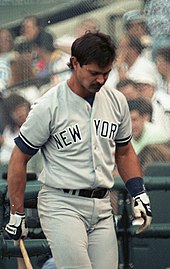
Following the team's loss to the Dodgers in the 1981 World Series, the Yankees began their longest absence from the playoffs since 1921. Following the example set by the St. Louis Cardinals and the Big Red Machine, Steinbrenner announced his plan to transform the Yankees from the "Bronx Bombers" into the "Bronx Burners," increasing the Yankees' ability to win games based on speed and defense instead of "waiting around for a 3 run home run." As a first step towards this end, the Yankees signed Dave Collins from the Cincinnati Reds during the 1981 off-season. Collins was traded to the Toronto Blue Jays after the 1982 season in a deal that also included future All-Stars Fred McGriff and Mike Morgan. In return the Yankees got Dale Murray and Tom Dodd.
The Yankees of the 1980s were led by All-Star first baseman Don Mattingly. In spite of accumulating the most total wins of any major league team, they failed to win a World Series (the 1980s were the first decade since the 1910s in which the Yankees did not win at least two Series) and had only two playoff appearances. Although they consistently had a powerful offense —Mattingly at various times was teammate to Dave Winfield (whom Mattingly battled for the AL batting title through most of the 1984 season), Rickey Henderson, Don Baylor, Ken Griffey, Sr., Mike Pagliarulo, Steve Sax, and Jesse Barfield, and the Yankees led MLB in runs scored for the decade — the Yankees teams of the 1980s lacked sufficient starting pitching to win a championship. After posting a 22–6 record in 1985, arm problems caught up with Guidry, and his performance declined over the next three years. Of the remaining mainstays of the Yankees' rotation, only Dave Righetti stood out, pitching a no-hitter on July 4, 1983, but he was moved to the bullpen the next year where he helped to define the closer role. Despite the Yankees' lack of pitching success during the 1980s, they had three of the premier pitchers of the early 1990s on their roster during these years in Al Leiter, Doug Drabek and José Rijo. All were mismanaged and dealt away before they could reach their full potential, with only Rijo returning much value – he was traded to the Oakland A's in the deal that brought Henderson to New York.
The team came close to winning the AL East in 1985 and 1986, finishing second to the Toronto Blue Jays and Boston Red Sox, respectively, but fell to fourth place in 1987 and fifth in 1988, despite having mid-season leads in the AL East both years.
By the end of the decade, the Yankees' offense declined. Henderson and Pagliarulo had departed by the middle of 1989, while back problems hampered both Winfield (who missed the entire 1989 season) and Mattingly (who missed almost the entire second half of 1990). Winfield's tenure with the team ended when he was dealt to the California Angels. From 1989 to 1992, the team had a losing record, spending significant money on free-agents and draft picks who did not live up to expectations. In 1990, the Yankees had the worst record in the American League, and their fourth last-place finish in franchise history.
During the 1990 season, Yankee fans started to chant "1918!" to taunt the Red Sox, reminding them of the last time they won a World Series one weekend the Red Sox were there in 1990. Each time the Red Sox were at Yankee Stadium afterward, chants of "1918!" echoed through the stadium. Yankee fans also taunted the Red Sox with signs saying "CURSE OF THE BAMBINO", pictures of Babe Ruth, and wearing "1918!" T-shirts each time they were at the stadium.
The poor showings in the 1980s and early 1990s soon changed. Steinbrenner hired Howard Spira to uncover damaging information on Winfield and was subsequently suspended from day-to-day team operations by Commissioner Fay Vincent when the plot was revealed. This turn of events allowed management to implement a coherent acquisition/development program without owner interference. General Manager Gene Michael, along with manager Buck Showalter, shifted the club's emphasis from high-priced acquisitions to developing talent through the farm system. This new philosophy developed key players such as outfielder Bernie Williams, shortstop Derek Jeter, catcher Jorge Posada, and pitchers Andy Pettitte and Mariano Rivera. The first significant success came in 1994, when the Yankees had the best record in the AL, but the season was cut short by a players' strike. Because the Yankees were last in a postseason in a season cut short by a strike, the news media constantly reminded the Yankees about the parallels between these two Yankees teams, which included both teams having division leads taken away by strike. Throughout October, the media continued to speculate about what might have been if there had not been a strike, making references to the day's games in the postseason would have been played.
A year later, the team qualified for the playoffs in the new wild card slot in the strike-shortened 1995 season. In the memorable 1995 American League Division Series against the Seattle Mariners, the Yankees won the first two games at home and lost the next three in Seattle. Although Mattingly batted .417 with a home run and six RBI in the only postseason series of his career, his back problems led him to retire after the 1995 season.
1996–2007: Core Four: Jeter, Posada, Pettitte, and Rivera
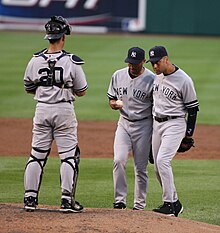
Joe Torre had a mediocre run as a manager in the National League, and the choice was initially derided ("Clueless Joe" was a headline in the New York Daily News). However, his calm demeanor proved to be a good fit, and his tenure was the longest under George Steinbrenner's ownership.
The 1996 season saw the rise of three Yankees who formed the core of the team for years to come: rookie shortstop Derek Jeter, second-year starting pitcher Andy Pettitte, and second-year pitcher Mariano Rivera, who served as setup man in 1996 before becoming closer in 1997. Aided by these young players, the Yankees won their first AL East title in 15 years. They defeated the Texas Rangers in the ALDS, and in ALCS beat the Baltimore Orioles 4–1, which included a notable fan interference by Jeffrey Maier that was called as a home run for the Yankees. In the World Series the team rebounded from an 0–2 series deficit and defeated the defending champion Atlanta Braves, ending an 18-year championship drought. Jeter was named Rookie of the Year. In 1997, the Yankees lost the 1997 ALDS to the Cleveland Indians 3–2. General manager Bob Watson stepped down and was replaced by assistant general manager Brian Cashman.
The 1998 Yankees are widely acknowledged to be one of the greatest teams in baseball history, compiling a record of 114–48, a then–AL record for the most wins in a season. On May 17, 1998, David Wells pitched a perfect game against the Minnesota Twins. The Yankees went on to sweep the San Diego Padres in the World Series. Their 125 combined regular and postseason wins remains an MLB single-season record.
On July 18, 1999, David Cone pitched a perfect game against the Montreal Expos. The ALCS was the Yankees' first postseason meeting with the rival Red Sox. The 1999 Yankees defeated the Red Sox 4–1 and swept the Braves in the 1999 World Series giving the 1998–99 Yankees a combined 22–3 record in the (including four series sweeps) in the six post-season series those years.
In 2000, the Yankees faced the Mets in the first New York City Subway World Series in 44 years. The Yankees won the series in 5 games, but a loss in Game 3 snapped their streak of consecutive games won in World Series contests at 14, surpassing the club's previous record of 12 (in 1927, 1928, and 1932). The Yankees are the last MLB team to repeat as World Series champions and after the 2000 season they joined the Yankees teams of 1936–39 and 1949–53, as well as the 1972–74 Oakland Athletics as the only teams to win at least three consecutive World Series.
In aftermath of the September 11, 2001 terrorist attacks, the Yankees defeated the Oakland Athletics in the ALDS, and the Seattle Mariners in the ALCS. By winning the pennant for a fourth straight year, the 1998–2001 Yankees joined the 1921–24 New York Giants, and the Yankees teams of 1936–39, 1949–53, 1955–58 and 1960–64 as the only teams to win at least four straight pennants. The Yankees won 11 consecutive postseason series in this 4-year period. In the World Series against the Arizona Diamondbacks, the Yankees lost the series when Rivera uncharacteristically blew a save in the bottom of the ninth inning of Game 7. Also, despite a very poor series overall, batting under .200, Derek Jeter got the nickname, "Mr. November", echoing comparisons to Reggie Jackson's "Mr. October", for his walk-off home run in Game 4, though it began October 31, as the game ended in the first minutes of November 1. In addition, the Yankees' home field in the aftermath of the attacks served as hosts of a memorial service titled "Prayer for America."
A vastly revamped Yankees team finished the 2002 season with an AL-best record of 103–58. The season was highlighted by Alfonso Soriano becoming the first second baseman ever to hit 30 home runs and steal 30 bases in a season. In the ALDS the Yankees lost to the eventual World Series champion Anaheim Angels 3–1.
In 2003, the Yankees again had the best league record (101–61), highlighted by Roger Clemens' 300th win and 4000th strikeout. In the ALCS, they defeated the Boston Red Sox in a dramatic seven-game series, which featured a bench-clearing incident in Game 3 and a series-ending walk-off home run by Aaron Boone in the bottom of the 11th inning of Game 7. In the World Series the Yankees lost in 6 games to the Florida Marlins.
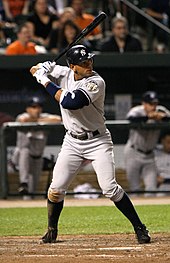
In 2004, the Yankees signed free agents Kenny Lofton and Gary Sheffield; and traded Alfonso Soriano to the Texas Rangers in exchange for star shortstop Alex Rodriguez, who moved to third base from his usual shortstop position to accommodate Jeter. In the ALCS, the Yankees met the Boston Red Sox again, and became the first team in professional baseball history, and only the third team in North American professional sports history, to lose a best-of-seven series after taking a 3–0 series lead.
In 2005 Alex Rodriguez won the American League MVP award, becoming the first Yankee to win the award since Don Mattingly in 1985. The Yankees again won the AL East by virtue of a tiebreaker but lost the ALDS 3–2 to the Angels. The 2006 season was highlighted by a 5-game series sweep of the Red Sox at Fenway Park (sometimes referred to as the "Second Boston Massacre"), outscoring the Red Sox 49–26.
Despite winning the AL East for the ninth consecutive year, the Yankees lost again in the ALDS, this time to the Detroit Tigers. After the ALDS was over, tragedy struck when pitcher Cory Lidle died when his plane crashed into a highrise apartment building in Manhattan. Along with Thurman Munson, Lidle was the second active Yankee to be killed in a private plane crash.
On June 18, 2007, the Yankees broke new ground by signing the first two professional baseball players from the People's Republic of China to the MLB, and became the first team in MLB history to sign an advertising deal with a Chinese company. The Yankees' streak of nine straight AL East division titles ended in 2007, but they still reached the playoffs with the AL Wild Card. For the third year in a row, the team lost in the first round of the playoffs, as the Cleveland Indians defeated the Yankees, 3–1, in the 2007 ALDS. After the series, Joe Torre declined a reduced-length and compensation contract offer from the Yankees and returned to the National League as manager of the Los Angeles Dodgers.
2008–2016: Championship run, followed by losing streak

After Torre's departure, the Yankees signed former catcher Joe Girardi to a three-year contract to manage the club. The 2008 season was the last season played at Yankee Stadium. To celebrate the final year and history of Yankee Stadium, the 2008 Major League Baseball All-Star Game was played there. The final regular-season game at Yankee Stadium was played on September 21, 2008. After the game, Jeter addressed the crowd, thanking them for their support over the years, and urging them to "take the memories of this field, add them to the new memories that will come at the new Yankee Stadium and continue to pass them on from generation to generation." Despite multiple midseason roster moves, the team was hampered by injuries and missed the playoffs for the first time in 14 seasons.

During the off-season, the Yankees retooled their roster with several star free agent acquisitions, including CC Sabathia, Mark Teixeira, and A. J. Burnett. At the beginning of the 2009 season, the Yankees opened the new Yankee Stadium, located just a block north on River Avenue from their former home. The Yankees set a major league record by playing error-free ball for 18 consecutive games from May 14 to June 1, 2009. Midway during the season at the trade deadline, the Yankees added OF/3B Eric Hinske from the Pirates, 3B Jerry Hairston Jr. from the Reds, and P Chad Gaudin from the Padres. The Yankees finished first in the AL East. In the ALDS they swept the Minnesota Twins before defeating the Los Angeles Angels in the ALCS, 4–2. They Yankees defeated the Philadelphia Phillies, in the World Series 4–2, their 27th World Series title.
The 2010 season featured the rivalry between the Yankees and Red Sox being revived to start and end the season. The Yankees and the Red Sox started and finished the season against each other at Fenway Park. This was the first time since 1950 this had happened. In June, Joe Torre's Dodgers played games against the Yankees for the first time since he became manager of the Dodgers, with the Yankees taking two out of three games in the series. During the 2010 All-Star break, public address announcer Bob Sheppard and principal owner George Steinbrenner died. Eight days later, another longtime Yankee icon, former player and manager Ralph Houk, died. The Yankees won the American League Wild Card. They swept the Minnesota Twins in the 2010 American League Division Series, but lost to the Texas Rangers in the ALCS, 4–2.
In a 22–9 win over the Oakland Athletics on August 25, 2011, the Yankees became the first team in Major League history to hit three grand slams in a single game. They were hit by Robinson Canó, Russell Martin, and Curtis Granderson. The Yankees won the AL East title, finishing with 97 wins and took home field throughout the AL postseason. However, they were defeated by the Tigers, 3–2, in the ALDS.
In 2012, the Yankees again finished the season with the AL's best record at 95–67. In mid-July, the Yankees traded two prospects to the Seattle Mariners for Ichiro Suzuki. They faced the Orioles in the ALDS. In Game 3, Raúl Ibañez became the oldest player to hit two home runs in a game, the oldest to hit a walk-off home run, the first substitute position player in a postseason game to hit two home runs, and the first to hit two home runs in the 9th inning or later in a postseason game, in the Yankees' 3–2 win. The Yankees defeated the Orioles in five games. However, in the ALCS, the Yankees lost to the Tigers again, this time in a four-game sweep, which was compounded with a struggling offense and a season-ending injury to Derek Jeter.
The 2013 season was riddled with injuries. Mark Teixeira strained his elbow during the World Baseball Classic prior to the start of the season and played only 15 games for the Yankees. Alex Rodriguez played only 44 games after a hip surgery, Jeter played only 17 games due to his ankle injury from the 2012 ALCS, and Curtis Granderson played only 61 games due to forearm and knuckle injuries. On April 12, 2013, the Yankees made their second triple play ever. It was scored as 4–6–5–6–5–3–4, the first triple play of its kind in baseball history. On September 25, the Yankees lost to the Tampa Bay Rays, which for the second time in the wild-card era, eliminated them from playoff contention. They ended the season 85–77, finishing in 3rd place in the AL East.
During the 2013–14 off-season, the Yankees signed Brian McCann, Jacoby Ellsbury, Masahiro Tanaka, and Carlos Beltrán. Despite that, the Yankees missed the playoffs, finishing 2nd in the AL East with an 84–78 record. Rodriguez missed the entire season due to a 162-game suspension for his participation in the Biogenesis baseball scandal. One notable moment happened on September 25, 2014, when Jeter – playing his final home game – hit a walk-off single off pitcher Evan Meek to defeat the Baltimore Orioles in front of 48,613 fans who came to see the captain for the last time. Reliever Dellin Betances finished 3rd in voting for AL Rookie of the Year, while starting pitcher Masahiro Tanaka finished 5th.
The Yankees would return to the playoffs in 2015. In his return from suspension, Rodriguez hit 33 home runs, his most since 2008, and tied Hank Aaron's record of fifteen 30-home-run seasons. Teixeira hit 31 home runs before a hit-by-pitch ended his season in August. Rookie first baseman Greg Bird had an impressive showing in Teixeira's place, hitting 11 home runs in 46 games, while rookie starting pitcher Luis Severino went 5–3 with a 2.89 ERA in 62+1⁄3 innings after getting called up in August. Closer Andrew Miller won the AL Reliever of the Year Award. The Yankees led the AL East for most of the year before being felled by a surging Toronto Blue Jays team, ending the season 87–75 and in 2nd place. They were defeated by the Houston Astros in the 2015 American League Wild Card Game.
In the off-season, the Yankees traded for Cincinnati Reds' closer Aroldis Chapman after a domestic violence allegation lowered his value. Chapman was later suspended 30 games. The Yankees started the 2016 season with a record of 9–17. The resurgent 2015 experienced by Rodriguez and Teixeira did not carry over, as they batted .200 and .204 for the season, respectively. Bird was ruled out for the season after undergoing shoulder surgery. Starting pitcher Michael Pineda struggled, going 6–12 with a 4.82 ERA, the 7th-highest in baseball. At the trade deadline, the Yankees stood at an uninspiring 52–52, and traded Chapman and Miller.
2017–present: Baby Bombers
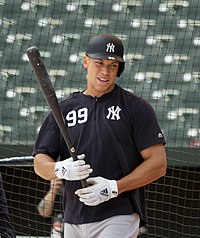
On July 25, 2016, the Yankees traded Aroldis Chapman to the Chicago Cubs for a group of players that included top shortstop prospect Gleyber Torres, and traded Andrew Miller to the Cleveland Indians for prospects outfielder Clint Frazier and pitcher Justus Sheffield. In addition, the Yankees traded 39-year-old designated hitter Carlos Beltran to the Texas Rangers for minor league prospects. The Yankees' decision to be sellers, rather than buyers, at the trade deadline was unusual, given the Yankees' typical win-now approach. In discussing the midseason trades, Yankees general manager Brian Cashman said that the Yankees recognized the "need to look toward the future."
In early August, both Teixeira and Rodriguez revealed their plans to retire by the season's end. Rodriguez played his final game on August 12, 2016. In his fourth-to-last game, Teixeira hit a walk-off grand slam against the Boston Red Sox, his 409th and last career home run. The Yankees called up Tyler Austin and outfielder Aaron Judge in August. They made their debuts on August 13, hitting back-to-back home runs in their first career at-bats. Catcher Gary Sánchez hit 20 home runs in 53 games, finishing 2nd in AL Rookie of the Year voting and setting the record at the time as the fastest to reach 20 career home runs. Sanchez, Judge and Austin, as well as the Yankees' prosperous farm system in general, became nicknamed the "Baby Bombers".
After having traded Chapman to the Cubs during the 2016 season, the Yankees signed him as a free agent during the 2016–17 off-season; Chapman agreed to a five-year, $86 million contract, the most lucrative in history for a relief pitcher. In 2017, the Yankees finished the season with a record of 91–71. They finished second in the AL East behind the Boston Red Sox, but captured the first AL Wild Card spot. Judge and Sánchez combined for 85 home runs. Sanchez finished with 33, the most by a Yankees catcher in a single season. Judge led the American League with 52 home runs, breaking Mark McGwire's major league record for most home runs by a rookie in a single season (McGwire hit 49 in 1987). The Yankees starting pitching was led by ace Luis Severino, who rebounded from his last season to lead the Yankees' pitching staff. On July 1, Clint Frazier made his MLB debut where he went 2 for 4 with a home run. The Yankees sent Dellin Betances, Starlin Castro, Sánchez, Severino, and Judge to the 2017 Major League Baseball All-Star Game. Judge won the 2017 Home Run Derby, making the Yankees the team with the most players in history to win a Home Run Derby.
After the 2017 All-Star break, the Yankees made a series of moves to acquire third baseman Todd Frazier, former Yankees reliever David Robertson, reliever Tommy Kahnle, starter Sonny Gray, and starter Jaime Garcia. In the 2017 AL Wild Card Game the Yankees defeated the Minnesota Twins to move on the ALDS. In the ALDS, the Yankees lost the first two games to the Cleveland Indians before winning the final three games and taking the series. They played the Houston Astros in the 2017 American League Championship Series and lost the series in seven games.
In the 2017–18 off-season, the Yankees hired Aaron Boone to succeed Girardi as their new manager. The Yankees traded Starlin Castro and prospects Jorge Guzman and Jose Devers to the Miami Marlins for reigning National League Most Valuable Player Giancarlo Stanton. A right fielder who bats right-handed, Stanton hit 59 home runs and drove in 132 runs—both major league highs—in 2017; his contract was the largest player contract in the history of professional sports in North America at the time. The Yankees also traded third baseman Chase Headley and pitcher Bryan Mitchell to the San Diego Padres for outfielder Jabari Blash; following the move, Yankees GM Brian Cashman stated that the trade "create payroll flexibility". On September 29, 2018 Gleyber Torres hit the Yankees 265th home run of the season which broke the record of the most home runs in a season, previously held by the 1997 Seattle Mariners. The Yankees ended the 2018 season with 267 home runs as well as a record of 100–62. In the 2018 playoffs, the Yankees defeated the Oakland Athletics in the Wild Card game, advancing to face the 108-win Red Sox in the ALDS. The Yankees fell to the Red Sox in the ALDS 3–1. In Game 3, the Yankees suffered their worst playoff defeat in team history, by a score of 16–1.
On June 25, 2019, the Yankees broke the record for the most home runs in consecutive games against the Toronto Blue Jays. On September 27, the Yankees became the second team to reach 300 homers in a season, achieved by their ALDS opponent, the Minnesota Twins, a day earlier. The Yankees ended the 2019 season with a record of 103–59, winning the AL East division title for the first time since 2012. The Yankees beat the Twins in a three-game sweep to advance to the ALCS for the second time in three seasons. However, on October 19, the Houston Astros beat the Yankees in the ALCS 4–2. With this loss, the 2010s decade became the first since the 1980s to have the Yankees fail to win a World Series and the first since the 1910s to have the Yankees failing to play in one.
During the 2019 offseason, on December 18, 2019, the Yankees signed Gerrit Cole to a nine-year, $324 million contract.
On August 28, 2020, the Yankees gave up a walk-off home run to Amed Rosario of the Mets in Yankee Stadium. The Mets were the home team because they were making up for a previously cancelled game. It was the first time a visiting player had hit a walk-off home run since Ed McKean hit one for the St. Louis Perfectos against the Cleveland Spiders in 1899. The Yankees finished the shortened 2020 season with a record of 33–27, finishing second in AL East. In the first round of the playoffs they swept the Cleveland Indians beating them in 2 games in the wild card series. In the ALDS, however, the Yankees were defeated by the Tampa Bay Rays in five games, marking four consecutive playoff exits.
Throughout the 2021 season, the Yankees finished with a 92-70 record, finishing in third place in the division. They made it in the second wild card spot, where they would play the Boston Red Sox in the Wild Card game at Fenway Park. The Yankees lost by a score of 6-2 after a bad performance by starter and ace Gerrit Cole. Some highlights from the 2021 season include the transactions of former all star players Rougned Odor, Corey Kluber, Anthony Rizzo, and Joey Gallo. On May 19, 2021, former Cy Young Award winner Corey Kluber threw a No-hitter against the Texas Rangers. This was the Yankees 12th no-hitter of all time, and the first since David Cone's perfect game in 1999. The Yankees also recorded a record-tying three triple plays throughout the 2021 season.
During the 2021 offseason, the MLB lockout happened, causing all of baseball operations to be shut down. On March 10, 2022, the lockout ended. Before the start of the 2022, the Yankees would trade away Gio Urshela, and Gary Sánchez for former AL MVP, Josh Donaldson. Yankees general manager Brian Cashman, and the Yankees organization as a whole were severely criticized by the fans for not signing many of the big name free agents that were available to sign. Players such as Freddie Freeman, Corey Seager, Carlos Correa, and Trevor Story to name a few were not signed by the Yankees despite outcry from the fans.
Distinctions

The Yankees have won a record 27 World Series in 40 appearances (which, since the first World Series in 1903, currently amounts to an average appearance every 2.7 seasons and a championship every 4.0 seasons); the St. Louis Cardinals are in second place with 11 World Series championships. The Yankees' number of World Series losses, 13, is also an MLB record. The Brooklyn/Los Angeles Dodgers are second in total World Series appearances with 20. The Yankees have faced the Dodgers 11 times, going 8–3. Among North American major sports, the Yankees' success is approached by only the 24 Stanley Cup championships of the Montreal Canadiens of the National Hockey League. The Yankees have played in the World Series against every National League pennant winner except the Houston Astros and the Colorado Rockies.
Through 2021, the Yankees have an all-time regular season winning percentage of .570 (a 10,548 – 7,953 record), the best of any team in MLB history.
On June 25, 2019, they set a new major league record for homering in 28 consecutive games, breaking the record set by the 2002 Texas Rangers.
With the walk-off solo home run by DJ LeMahieu to win the game against the Oakland Athletics on August 31, 2019, the Yankees ended the month of August that year now holding a new record of 74 home runs hit in the month alone, a new record for the most home runs hit in a month by a single MLB team.
World Series championships
The Yankees have won a record 27 World Series Championships. Their most recent one came when the new stadium opened in 2009; they defeated the Philadelphia Phillies in six games under manager Joe Girardi.
Team nicknames
The "Yankees" name is often shortened to "the Yanks." Their most prominently used nickname is "the Bronx Bombers" or simply "the Bombers", a reference to their home and their prolific hitting. A less used nickname is "the Pinstripes", in reference to the iconic feature on their home uniforms. Critics often refer to the team and the organization as "the Evil Empire", a term applied to the Yankees by Boston Red Sox president Larry Lucchino in a 2002 interview with the New York Times. A term from the team's tumultuous late 1970s, "the Bronx Zoo", is sometimes used by detractors, as well as the "Damn Yankees", after the musical of the same name. Ironically, even many Yankees supporters refer to their team as the "Evil Empire" as a badge of honor and in fact enjoy having their team play the villain.
Logos and uniforms
Main article: Logos and uniforms of the New York YankeesPopularity
Fan support

With their recurring success since the 1920s, the Yankees have since been one of the most popular teams in the world, with their fan base coming from much further than the New York metropolitan area. The Yankees typically bring an upsurge in attendance at all or most of their various road-trip venues, drawing crowds of their own fans, as well as home-town fans whose interest is heightened when the Yankees come to town.
The first 1 million-fan season was in 1920, when 1,289,422 fans attended Yankee games at the Polo Grounds. The first 2 million-fan season was in 1946, when 2,265,512 fans attended the games at Yankee Stadium. The Yankees have beaten the league average for home attendance 83 out of the last 87 years (only during 1990, 1991, 1992 and 1994 did they not accomplish this). In the past seven years, the Yankees have drawn over three million fans each year, with an American League record-setting 4,090,696 in 2005, becoming only the third franchise in sports history to draw over four million in regular-season attendance in their own ballpark. The Yankees were the league leaders in "road attendance" each year from 2001 through 2006.
One famous fan was Freddy Schuman, popularly known as "Freddy Sez." For over 50 years, he came to the Yankees' home games with a baseball cap, a Yankees' jersey (which on the back bears his own name), and a cake pan with a shamrock painted on it, which was connected to a sign inscribed with words of encouragement for the home team. Schuman died on October 17, 2010, at the age of 85.
To avoid unwanted publicity, Yankees players use aliases when registering for hotels. The Village Voice published a list of aliases used by Yankees players, and the contents were republished on The Smoking Gun.
The Bleacher Creatures
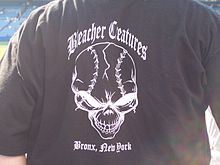
The "Bleacher Creatures" are a notorious group of season ticket holders who occupied Section 39 in the right-field bleachers at the old Yankee Stadium and occupy Section 203 in the new one. They are known for their strict allegiance to the Yankees and are often merciless to opposing fans who sit in the section and cheer for the road team. They enjoy taunting the opposing team's right fielder with a series of chanting and slandering. The "creatures" got their nickname from New York Daily News columnist Filip "Flip" Bondy, who spent the 2004 season sitting in the section for research on his book about the group, Bleeding Pinstripes: A Season with the Bleacher Creatures of Yankee Stadium, published in 2005.
The Judge's Chambers at Yankee Stadium
In 2017, team management ordered the creation of a special cheer section within Section 104 for fans of Yankees outfielder Aaron Judge, called "the Judge's Chambers". They were the second AL team to create a special cheering section, following the Seattle Mariners. The Judge's Chambers was added in response to his rise as one of the league's most popular young stars. The section's 18 seats are given to lucky ticketholders and their families, along with black judicial robes with the team logo on the front and Judge's 99 jersey number on the back; prior to the addition of the section, fans were wearing white wigs and judicial robes to games in support of Judge. Occasionally, community organizations, charities and Little League teams are given precedence when selecting participants. The seats, which are close to his position in right field, are surrounded by mahogany wood to emulate the appearance of the city's courthouses.
Global expansion and business model
The Yankees baseball club is formally owned by Yankee Global Enterprises, which owns the team's regional YES sports network. The club has claimed that it is operating under annual losses in excess of $47 million, but this figure is attributed only to the ballclub's finances and not to finances attributed to YES or Yankees Global Enterprises.
The Yankees have become well known for a winning reputation on a global level. In 2007, they reached an agreement with the Chinese Baseball Association to allow coaches, scouts and trainers to work in China to promote baseball and judge talent. They are trying to do the same with the Yomiuri Giants and the Hanshin Tigers in Japan. The Yankees and Yomiuri Giants currently have a close relationship and share ideas and strategies. The Yomiuri Shimbun daily newspaper has an ad on the left-field wall at Yankee Stadium, and other Japanese ads appear on the scrolling backstop advertising board. The Yankees are hoping that close ties with countries such as China and Japan will give them personal, in-depth judgments of baseball talent.
In 2008, the Yankees announced a joint venture with the Dallas Cowboys to form the basis for a partnership in running food and beverage, and other catering services to both teams' stadiums.
In 2013, Forbes magazine ranked New York Yankees as the fourth most valuable sports team in the world, behind Real Madrid of La Liga, Manchester United of the Premier League and Barcelona of La Liga, a value of $2.3 billion.
In 2017, Forbes magazine ranked the Yankees as the most valuable MLB team at $3.7 billion, up 9% from 2016, with the average MLB team worth $1.54 billion.
In 2019, Forbes magazine ranked the Yankees as the most valuable MLB team at $4.6 billion, up 15% from 2018, which is currently the 2nd most valuable sports franchise behind only the Dallas Cowboys.
Criticism
With the long-term success of the franchise and a large Yankee fanbase, many fans of other teams have come to dislike the Yankees. The organization is sometimes referred to by detractors as "the Bronx Zoo" (echoing the title of Sparky Lyle's book) or "the Evil Empire." When the Yankees are on the road, it is common for the home fans to chant "Yankees Suck", and T-shirts, bumper stickers and other items have been sold with this phrase.
Much of the animosity toward the team may derive from its high payroll (which was around $200 million at the start of the 2008 season, the highest of any American sports team). Chicago Tribune columnist Mike Royko noted, "Hating the Yankees is as American as pizza pie, unwed mothers, and cheating on your income tax."
Fight and theme songs

The official fight song for the Yankees is "Here Come the Yankees", written in 1967 by Bob Bundin and Lou Stallman. While it is not used as often, it is still heard frequently in instrumental form, most prominently in radio broadcasts, until 1990 it was played as the theme for television broadcasts in several versions. Another song strongly linked to the team is "New York, New York", which is played in the stadium after home games. The Frank Sinatra cover version is traditionally played after victories, and the Liza Minnelli original version after losses. However, due to a complaint from Minnelli, regardless of the result of the game played in the stadium it is the Sinatra version that is played to close it out. When the Yankees take the field before the start of every game, 2 Unlimited's "Get Ready For This" is played, with the fans usually clapping along. When the Yankees hit a home run at home, Hip Hop Hooray by Naughty by Nature is played, followed by a short snippet of 2 Unlimited's "Workaholic" containing the bell chime of Westminster Quarters is played (whenever Aaron Judge scores a run the snippet is replaced by with "The Clang" tone by veteran composer Mike Post, used in the Law & Order franchise).
A wide selection of songs are played regularly at the stadium, many of them live on the Stadium's Hammond organ. "God Bless America" has been played during the 7th inning stretch since September 11. The version typically played for many years since 2001 was an abbreviated version of Kate Smith's rendition. However, during many important games (including most play-off games) and on noteworthy days, it is sung live a cappella and includes a longer introduction, in 2019 the tradition of playing her version officially ended due to racial controversy involving Smith and the tune was then live by the stadium organist during the stretch in the interim.In 2021, the organ version was replaced by a recording of the Robert Merrill cover of the song - Merrill having been for years the national anthem singer in the old Yankees Stadium for Opening Day and other special events. During the 5th inning, the grounds crew, while performing their duties, dance to "Y.M.C.A.". "Cotton-Eyed Joe", once played during the 7th inning stretch, is now played in the 8th inning. On the DiamondVision screen, a man in farmer's garb is shown dancing in the stadium's control room, with the words "Cotton-Eyed Joey" at the bottom. The organist will sometimes play the "Zorba the Greek Theme", accompanied by clapping from the audience, to excite the crowd and encourage a rally.
Radio and television
Main article: List of New York Yankees broadcasters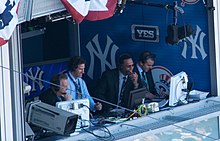
The Yankees Entertainment and Sports (YES) Network was launched in 2002 and serves as the primary home of the New York Yankees. Michael Kay is the play-by-play announcer with Ken Singleton, David Cone, Al Leiter, John Flaherty, and Paul O'Neill working as commentators as part of a three-man, or occasionally two-man, booth. Bob Lorenz hosts the pre-game show and the post-game show with Jack Curry, and Meredith Marakovits and Nancy Newman are the on-site reporters. Some games are available streaming on Amazon Prime, these games formally aired on WPIX and WWOR-TV; these games are produced by YES.
Radio broadcasts are on the Yankees Radio Network, the flagship station being WFAN 660 AM, with John Sterling as the play-by-play announcer and Suzyn Waldman providing the commentary, with Spanish-language broadcasts on WADO 1280 AM.
The history of Yankees' radio broadcasters is: WJZ 770 (1939–1940), WOR 710 (1942), WINS 1010 (1944–1957), WMGM 1050 (1958–1960), WCBS 880 (1961–1966), WHN 1050 (1967–1970), WMCA 570 (1971–1977), WINS 1010 (1978–1980), WABC 770 (1981–2001), WCBS 880 (2002–2013), WFAN 660 AM and WFAN-FM 101.9 (2014–present).
Past announcers
- Mel Allen was the team's lead announcer from 1948 to 1964. He was known as "The voice of the Yankees."
- Russ Hodges had a brief stint with Mel Allen before he took over as the lead announcer with the New York Giants.
- Red Barber called Yankees games for 13 seasons (1954–1966).
- Jerry Coleman called Yankees games from 1963 to 1970.
- Joe Garagiola called Yankees games from 1965 to 1967.
- Frank Messer, Phil Rizzuto and Bill White teamed together in the 1970s and 1980s. Rizzuto, with 40 years in the broadcast booth, was the longest-serving broadcaster in the history of the club. Messer and White each worked nearly two decades for the Yankees, with White notably moving on to become president of the National League in 1989. Bobby Murcer also called games for over twenty years, and continued with the YES Network until shortly before his death from brain cancer.
Roster
Further information: List of New York Yankees coaches, List of New York Yankees managers, New York Yankees award winners and league leaders, and New York Yankees team captainsRetired numbers
See also: List of Major League Baseball retired numbersThe Yankees have retired 21 numbers for 23 individuals, the most in Major League Baseball.
|
The retired numbers were displayed behind the old Yankee Stadium's left-field fence and in front of the opposing team's bullpen, forming a little alley that connects Monument Park to the left-field stands. When the franchise moved across the street to the new stadium, the numbers were incorporated into Monument Park that sits place in center field between both bullpens. The 21 numbers are placed on the wall in chronological order, beginning with Lou Gehrig's number 4. This was retired soon after Gehrig left baseball on July 4, 1939, the same day he gave his famous farewell speech. His was the first number retired in Major League Baseball history. Beneath the numbers are plaques with the names of the players and a descriptive paragraph.

The number 42 was retired throughout Major League Baseball in honor of Jackie Robinson on April 15, 1997, the 50th anniversary of his breaking the color barrier. The day was declared Jackie Robinson Day, and was later observed by all of baseball, with select players from every team wearing the number 42. Players who wore No. 42 at the time were allowed to continue to wear it until they left the team with which they played on April 15, 1997; Mariano Rivera was the last active player covered under that grandfather clause. While other teams placed the number 42 with the rest of their retired numbers, the Yankees did not do so at first. Ten years later, on April 17, 2007, the Yankees honored Robinson by mounting the logo of Jackie Robinson Day with a corresponding plaque alongside the rest of the retired numbers. Because the Yankees were finishing a roadtrip in Oakland on Jackie Robinson Day, the ceremony took place two days later. When the Yankees moved to the second Yankee Stadium, they replaced the Jackie Robinson Day logo with a number 42 that resembled the other retired numbers. Later on they replaced the number 42 so that it resembled the Dodgers' style, and on September 22, 2013, a plaque was dedicated to Robinson in Monument Park. Also, the number 42 dedicated to Robinson was removed entirely and replaced with one for Mariano Rivera.
In 1972, the number 8 was retired for two players on the same day, in honor of catcher Bill Dickey and his protege, catcher Yogi Berra. Berra inherited Dickey's number in 1948 after Dickey ended his playing career and became a coach.
Billy Martin is the only Yankee to have his number retired as a player/manager combination. He wore number 1 as a player in the 1950s and as a manager in the 1970s and 1980s.
The numbers 37 and 6, retired for Casey Stengel and Joe Torre respectively, are the only numbers retired by the Yankees for someone who served solely as manager of the team. Stengel managed the Yankees to ten pennants and seven world championships between 1949 and 1960, including a record five consecutive world championships from 1949 through 1953. Joe Torre managed the Yankees from 1996 to 2007, winning six pennants and four World Series championships.
On May 14, 2017, the Yankees retired number 2 in honor of Derek Jeter. This leaves 0 as the only single-digit number available for future Yankees.
Out of circulation, but not retired
At least two Yankees numbers have not been formally retired, but have been kept out of circulation.
- 21 – Paul O'Neill's No. 21 had only been issued twice since he ended his career at the end of 2001. In 2008, non-roster invitee Morgan Ensberg wore no. 21 during Spring Training before fans gave him such a hard time about it that he eventually gave it up for #11. LaTroy Hawkins then claimed the number in April before changing to #22 only weeks into the season, citing the headache it caused when fans booed him and taunted him for wearing the number. However, O'Neill's No. 21 will be retired on August 21, 2022.
- 13 – Alex Rodriguez's No. 13 was out of circulation since his retirement in 2016, until 2021 when the number was assigned to Joey Gallo.
- 69 – Alan Mills is the only person who wore it (in 1990) and has not been assigned to anyone else since then.
Hall of Famers

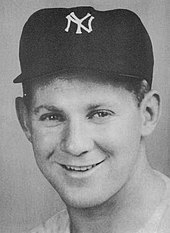






| New York Yankees Ford C. Frick Award recipients | |||||||||
|---|---|---|---|---|---|---|---|---|---|
| Affiliation according to the National Baseball Hall of Fame and Museum | |||||||||
|
Rivalries
Boston Red Sox
Main article: Yankees–Red Sox rivalryThe Yankees–Red Sox rivalry is one of the oldest, most famous, and fiercest rivalries in professional sports. For over 100 years, the Yankees and Boston Red Sox Yankees have been intense rivals. The rivalry is often termed "the best" and "greatest rivalry in all of sports." Games between the two teams are often broadcast on national television.
The rivalry is sometimes so polarizing that it is often a heated subject, like religion or politics, in the Northeastern United States. Since the inception of the wild card team and an added Division Series, the rivals have met in the playoffs five times (with the Yankees winning the 1999 and 2003 American League Championship Series and the Red Sox winning in the 2004 American League Championship Series, 2018 American League Division Series and the 2021 American League Wild Card Game) In addition, the teams have twice met in the last regular-season series of a season to decide the league title, in 1904 (when the Red Sox won) and 1949 (when the Yankees won).
The teams also finished tied for first in 1978, when the Yankees won a high-profile tiebreaker game for the division title. The 1978 division race is memorable for the Red Sox having held a 14-game lead over the Yankees more than halfway through the season. Similarly, the 2004 ALCS is notable for the Yankees leading 3 games to 0 and ultimately losing the next four games and the series. The Red Sox comeback was the only time in MLB history that a team has come back from a 0–3 deficit to win a postseason series.
Subway Series: New York Mets
Main articles: Subway Series, Mets–Yankees rivalry, Dodgers–Yankees rivalry, and Giants–Yankees rivalryThe Subway Series is a series of games played between teams based in New York City. The term's historic usage has been in reference to World Series games played between New York teams. The Yankees have appeared in all Subway Series games as they have been the only American League team in the city, and have compiled an 11–3 record in the 14 championship Subway Series. Since 1997, the term Subway Series has also been applied to interleague play during the regular season between the Yankees and National League New York Mets.
Minor league affiliations
Main article: List of New York Yankees minor league affiliatesThe New York Yankees farm system consists of six minor league affiliates.
| Level | Team | League | Location |
|---|---|---|---|
| Triple-A | Scranton/Wilkes-Barre RailRiders | International League | Moosic, Pennsylvania |
| Double-A | Somerset Patriots | Eastern League | Bridgewater Township, New Jersey |
| High-A | Hudson Valley Renegades | South Atlantic League | Wappingers Falls, New York |
| Single-A | Tampa Tarpons | Florida State League | Tampa, Florida |
| Rookie | FCL Yankees West | Florida Complex League | Tampa, Florida |
| DSL Yankees | Dominican Summer League | Boca Chica, Santo Domingo |
Front office
Main article: List of New York Yankees owners and executivesThe Yankees front office, as of 2019, included Hal Steinbrenner (Managing General Partner/Co-chairperson), Randy Levine (President), Lonn A. Trost (Chief Operating Officer and General Counsel), and Brian Cashman (Senior Vice President, General Manager).
See also
References
Notes
- The Polo Grounds were actually four different stadiums, the stadium mentioned in this article are Polo Grounds III and IV.
Sources
- Hoch, Bryan (April 22, 2021). "Yankees making Stadium greener than ever". MLB.com. Archived from the original on April 9, 2022. Retrieved July 3, 2022.
The official colors of the Yankees' uniforms are midnight navy and white, but thanks to the sustainability initiatives incorporated by the organization over the past several seasons, Yankee Stadium has become one of the greenest facilities in the Majors.
- "New York Yankees: Additional Club Art" (PDF). Major League Baseball. Archived from the original (PDF) on April 9, 2022. Retrieved July 3, 2022.
- Kepner, Tyler (September 29, 2007). "Steinbrenner Son Elected Chairman of Yankees". The New York Times. Archived from the original on June 5, 2015. Retrieved July 4, 2022.
- ^ "Yankees Timeline - 1900s". Yankees.com. MLB Advanced Media. Archived from the original on April 7, 2019. Retrieved July 4, 2022.
- "Yankees Timeline - 1910s". Yankees.com. MLB Advanced Media. Archived from the original on April 9, 2022. Retrieved July 4, 2022.
- Wancho, Joseph (April 16, 2009). "Indians throttle Yankees in grand opening of new Yankee Stadium". Society for American Baseball Research. Archived from the original on July 8, 2021. Retrieved July 4, 2022.
- "New York Yankees Attendance, Stadiums, and Park Factors". Baseball-Reference.com. Archived from the original on April 7, 2022. Retrieved July 4, 2022.
- Acocella, Nick. "History of a dynasty". ESPN.com. Archived from the original on December 1, 2021. Retrieved July 4, 2022.
- Robertson, Matthew (June 21, 2022). "The Houston Astros remain the class of the AL West and will provide tough test for both Mets, Yankees". New York Daily News. Archived from the original on June 24, 2022. Retrieved July 4, 2022.
- "World Series History: 1999". MLB.com. Major League Baseball Advanced Media. Archived from the original on June 10, 2022. Retrieved July 4, 2022.
- "Major League Teams and Baseball Encyclopedia". Baseball-Reference.com. Archived from the original on July 2, 2022. Retrieved July 4, 2022.
- Stainkamp, Michael (August 17, 2010). "A brief history: Montreal Canadiens". NHL.com. Archived from the original on June 24, 2021. Retrieved July 4, 2022.
- Casella, Paul (January 21, 2020). "Highest voting percentages in HOF history". MLB.com. Archived from the original on June 13, 2022. Retrieved July 4, 2022.
- "New York Yankees Hall of Fame Register". Baseball-Reference.com. Archived from the original on June 10, 2022. Retrieved July 4, 2022.
- Ozanian, Mike; Teitelbaum, Justin (May 26, 2022). "The World's Most Valuable Soccer Teams 2022: Real Madrid, Worth $5.1 Billion, Is Back On Top". Forbes. Archived from the original on July 2, 2022. Retrieved July 4, 2022.
- "Team profile: The worldwide phenomenon of the New York Yankees". YouGov. Archived from the original on November 27, 2021. Retrieved July 4, 2022.
- Enten, Harry (July 20, 2017). "America Has Spoken: The Yankees Are The Worst". FiveThirtyEight. Archived from the original on January 18, 2022. Retrieved July 4, 2022.
- "Red Sox-Yankees is baseball's ultimate rivalry". USA Today. October 20, 2004. Archived from the original on October 24, 2007. Retrieved July 4, 2022.
- "New York Yankees Team History & Encyclopedia". Baseball-Reference.com. Archived from the original on July 4, 2022. Retrieved July 4, 2022.
- "The National Game, from Coast to Coast: From Minor to Major". Library of Congress. Archived from the original on June 14, 2021.
- Buege, Bob (2001). "The Birth of the American League". Society for American Baseball Research. Archived from the original on January 15, 2022. Retrieved July 4, 2022.
- Frommer, Harvey (October 1, 2016). Old Time Baseball: America's Pastime in the Gilded Age. Rowman & Littlefield. ISBN 9781630760076.
- "Change The Name: Old Western Is Now the New American League". Chicago Inter Ocean. October 12, 1899. p. 8. Retrieved July 4, 2022 – via Newspapers.com.
- ^ "Origin of each MLB franchise". Fox Sports. October 20, 2016. Archived from the original on October 23, 2017. Retrieved July 4, 2022.
- Weeks, Jonathan (2016). Baseball's Dynasties and the Players Who Built Them. Rowman & Littlefield. p. 89. ISBN 9781442261570.
- Tygiel, Jules (2000). Past Time: Baseball as History. Oxford University Press. p. 53. ISBN 9780195089585.
- "1903 AL-NL Peace Agreement". Society for American Baseball Research. January 10, 1903. Archived from the original on September 11, 2012. Retrieved July 4, 2022.
- ^ "New York Yankees (1903–present)". Sports E-cyclopedia. Archived from the original on February 7, 2009. Retrieved March 12, 2009.
- ""Billy" Burbridge Dead" (PDF). The New York Times. September 17, 1912. Archived from the original (PDF) on April 7, 2022. Retrieved July 4, 2022.
- Stout, Glenn (2002). Johnson, Richard (ed.). Yankees Century: 100 Years of New York Yankees Baseball. Houghton Mifflin Harcourt. pp. 9–14. ISBN 9780618085279.
- Krisel, Brandon (September 21, 2018). "Plaque Honors Yankees' Original Washington Heights Stadium". Washington Heights-Inwood Patch. Archived from the original on April 7, 2022. Retrieved July 5, 2022.
- Lamb, Bill. "Hilltop Park (New York)". Society for American Baseball Research. Archived from the original on January 26, 2021. Retrieved July 4, 2022.
{{cite news}}:|archive-date=/|archive-url=timestamp mismatch; January 26, 2022 suggested (help) - Calcaterra, Craig (April 10, 2020). "Today in Baseball History: The Yankees become The Yankees". NBC Sports. Archived from the original on December 2, 2020. Retrieved July 5, 2022.
- Lamb, Bill. "Joseph Gordon". Society for American Baseball Research. Archived from the original on March 19, 2022. Retrieved July 5, 2022.
- ^ Appel, Marty (2012). Pinstripe Empire: The New York Yankees From Before the Babe to After the Boss. Bloomsbury Publishing. ISBN 9781608194926.
- Krell, David. "April 22, 1903: New York makes its American League debut as Highlanders fall to Washington on Opening Day". Society for American Baseball Research. Archived from the original on March 17, 2022. Retrieved July 5, 2022.
- Worth, Richard (2013). Baseball Team Names: A Worldwide Dictionary, 1869-2011. McFarland & Company. p. 203. ISBN 9780786491247.
- "Some Facts About "Live Wire" Baseball". The Evening World. February 16, 1914. p. 12. Retrieved July 5, 2022 – via Library of Congress.
- Hoch, Bryan (December 1, 2021). "How they came to be called the Yankees". MLB.com. Archived from the original on January 25, 2021. Retrieved July 5, 2022.
- Howell, Brian (2015). New York Yankees. ABDO. p. 15. ISBN 9781629688312.
- "Jack Chesbro". National Baseball Hall of Fame and Museum. Archived from the original on October 6, 2021. Retrieved July 5, 2022.
- McArdle, Tommy (May 2, 2019). "Why Boston's baseball team is called the Red Sox". Boston.com. Archived from the original on October 13, 2021. Retrieved July 5, 2022.
- ^ Sandomir, Richard (September 11, 1994). "The Series That Never Was; 90 Years Ago, the Event Was Canceled Because of an Owners' Feud". The New York Times. ISSN 0362-4331. Archived from the original on July 1, 2019. Retrieved February 26, 2019.
- Thornley, Stew. "Polo Grounds (New York)". Society for American Baseball Research. Archived from the original on June 4, 2022. Retrieved July 5, 2022.
- "The Polo Grounds". Sports Illustrated. September 27, 1954. Archived from the original on April 13, 2021. Retrieved July 5, 2022.
- Steinberg, Steve; Spatz, Lyle (Fall 2009). "1921: The Yankees, the Giants, and the Battle for Baseball Supremacy in New York". Society for American Baseball Research. Archived from the original on January 14, 2022. Retrieved July 5, 2022.
- Dufresne, Chris (September 15, 1994). "BASEBALL '94: Going, Going. . .Gone : In a Way, It's 1904 All Over : History: Ninety years ago, the World Series was not played because of a personality feud between the sport's power brokers". Los Angeles Times. Archived from the original on February 24, 2021. Retrieved July 5, 2022.
- "Polo Grounds is Historic Diamond". The New York Times. October 2, 1921. Retrieved July 5, 2022 – via Newspapers.com.
- Fischer, David (April 15, 2018). 100 Things Yankees Fans Should Know & Do Before They Die. Triumph Books. ISBN 9781633199743.
- Epting, Chris (2009). The Early Polo Grounds. Arcadia Publishing. p. 25. ISBN 9780738562872.
- Worth, Richard (2013). Baseball Team Names: A Worldwide Dictionary, 1869–2011. McFarland & Company. p. 203. ISBN 9780786491247.
- Gunderman, Dan (April 1, 2017). "A look at the latter portion of William 'Big Bill' Devery's life, from crooked NYC top cop to becoming part of the Yankees dynasty". New York Daily News. Archived from the original on April 1, 2017. Retrieved July 5, 2022.
- "The Yankees (Fortune Classics, 1946)". Fortune. Archived from the original on April 2, 2019. Retrieved April 2, 2019.
- "Sale of the Yanks Is Finally Consummated". The Washington Herald. January 31, 1915. p. 2. Retrieved July 5, 2022 – via Newspapers.com.
- "Sold At Last! Yes, Yankees Change Hands". Chicago Tribune. January 1, 1915. p. 15 – via Newspapers.com.
- "Find Franchise Trade History between Boston Red Sox & New York Yankees". Baseball-Reference.com. Archived from the original on August 30, 2012. Retrieved July 13, 2012.
- "Owners Of Yanks To Enjoin Johnson; Colonels Ruppert and Huston Will Carry Fight for Carl Mays Into Court. Refuse To Attend Meeting Big Baseball Battle Precipitated by Ban's Belated Action Against Former Boston Pitcher. Will Enjoin President. Statement of Owners. Parting of the Ways". The New York Times. August 4, 1919. Archived from the original on April 9, 2022. Retrieved July 23, 2018.
- ^ Stout, Glenn (July 18, 2002). "When the Yankees nearly moved to Boston". ESPN. Archived from the original on January 15, 2016. Retrieved July 5, 2022.
- Montville, Leigh (2006). The Big Bam: The Life and Times of Babe Ruth. Random House. pp. 101–104.
- Vecsey, George (September 24, 2004). "A Myth That Should Not Be Perpetuated". The New York Times. Archived from the original on November 12, 2020. Retrieved July 5, 2022.
- Kepner, Tyler (October 28, 2004). "Red Sox Erase 86 Years of Futility in 4 Games". The New York Times. ISSN 0362-4331. Archived from the original on May 2, 2019. Retrieved July 5, 2022.
- Shaughnessy, Dan (2005). Reversing the Curse. Houghton Mifflin. pp. 7–8. ISBN 0-618-51748-0.
- Schumach, Murray (August 17, 1948). "Babe Ruth, Baseball's Great Star and Idol of Children, Had a Career Both Dramatic and Bizarre". The New York Times. Archived from the original on December 15, 2018. Retrieved July 5, 2022.
- "1921 MLB Season History – Major League Baseball". ESPN. Archived from the original on May 2, 2019. Retrieved July 5, 2022.
- Hanna, William (October 5, 1921). "Teams in Final Drill on Eve of World Series". New York Herald. p. 6. Retrieved July 5, 2022 – via Newspapers.com.
- "Giants Win Series". The Daily Advance. Associated Press. October 13, 1921. p. 1. Retrieved July 5, 2022 – via Newspapers.com.
- Spector, Jesse (September 21, 2008). "Touching Base: Yankees had homes before becoming Bronx Bombers". New York Daily News. Archived from the original on May 2, 2019. Retrieved July 5, 2022.
- Healey, Mark (2021). Gotham Baseball: New York's All-Time Team. Arcadia Publishing. ISBN 9781439669563.
- "Yankee Stadium on North Bank of Harlem River". New York Herald. February 6, 1921. p. 45. Retrieved July 5, 2022 – via Newspapers.com.
- "1922 MLB Season History – Major League Baseball – ESPN". ESPN. Archived from the original on May 2, 2019. Retrieved July 5, 2022.
- "Huggins Still in Dark on Shocker's Return; Says He Has Received No Word From Pitcher". The New York Times. April 10, 1928. p. 24. Archived from the original on February 27, 2018. Retrieved July 6, 2022.
- Spatz, Lyle (April 2013). Bridging Two Dynasties: The 1947 New York Yankees. University of Nebraska Press. p. 1. ISBN 9780803240940.
{{cite book}}: CS1 maint: date and year (link) - Durant, John (April 22, 1923). "April 1923: First Day at Yankee Stadium". Sports Illustrated. Archived from the original on April 18, 2022. Retrieved July 6, 2022.
- Allen, Erika (April 18, 2014). "April 18, 1923: Yankee Stadium Opens to Public". The New York Times. ISSN 0362-4331. Archived from the original on April 21, 2014. Retrieved May 15, 2019.
- "Babe Ruth's first Yankee Stadium home run bat up for auction". ESPN.com. Archived from the original on January 31, 2005. Retrieved May 15, 2019.
- Smith, Red (April 11, 1976). "The House That Ruth Built—rebuilt". The New York Times. ISSN 0362-4331. Retrieved May 15, 2019.
- "Ruth's '23 World Series watch up for auction". ESPN.com. January 24, 2014. Retrieved May 15, 2019.
- Koppett, Leonard. "1927 "Murderers' Row" New York Yankees: No Team Has Ever Been Better". National Baseball Hall of Fame. Archived from the original on April 7, 2007. Retrieved June 4, 2007.
- ^ "1927 Yankees". Los Angeles Times. January 27, 2008. ISSN 0458-3035. Retrieved May 15, 2019.
- "Remembering the Day Lou Gehrig Sat Down". Los Angeles Times. April 30, 1989. ISSN 0458-3035. Retrieved May 15, 2019.
- "Single-Season Leaders & Records for Runs Batted in".
- "1928 MLB Season History – Major League Baseball – ESPN". ESPN.com. Archived from the original on August 29, 2018. Retrieved May 15, 2019.
- ^ "The Disappointing Reason Babe Ruth Left Baseball". Time. Archived from the original on May 1, 2018. Retrieved July 3, 2019.
- "Babe Ruth ended his Major League career as a mind-blowing statistical outlier". MLB.com. Archived from the original on July 3, 2019. Retrieved July 3, 2019.
- Blevins, Dave (2012). The Sports Hall of Fame Encyclopedia. The Scarecrow Press. p. 837.
- Sandomir, Richard (September 3, 2009). "Gehrig's Final Hit: A Single on a Cold April Day in the Bronx". The New York Times. ISSN 0362-4331. Archived from the original on July 3, 2019. Retrieved July 3, 2019.
- "On This Day: Lou Gehrig announces retirement". UPI. Archived from the original on July 3, 2019. Retrieved July 3, 2019.
- "A number of nuggets about retired numbers around the Major League". Desert Sun. Retrieved July 3, 2019.
- "Farewell Speech". lougehrig.com. July 4, 1939. Archived from the original on July 14, 2015. Retrieved March 23, 2009.
- "Lou Gehrig Died 75 Years Ago. His Disease Still Devastates". Time. Archived from the original on March 14, 2019. Retrieved July 12, 2019.
- "20 baseball records that may never be broken". Archived from the original on August 1, 2013. Retrieved April 14, 2013.
- Shapiro, Michael (July 23, 2010). "The Del Webb Yankees". The New Yorker. ISSN 0028-792X. Retrieved July 12, 2019.
- "The Yankees (Fortune Classics, 1946)". Fortune. Archived from the original on July 12, 2019. Retrieved July 12, 2019.
- "C.B.S. Formally Completes Purchase of Yankees From Topping and Webb; U.S. SAID TO FORGO ANTITRUST ACTION; Network and Ball Cub Seal $11.2 Million Deal—Ford to Have Arm Operation". The New York Times. November 3, 1964. ISSN 0362-4331. Archived from the original on July 12, 2019. Retrieved July 12, 2019.
- ^ "Joe DiMaggio Biography". biography.com. May 28, 2020. Retrieved March 2, 2021.
- Acocella, Nick. "Larsen had one perfect day". ESPN. Archived from the original on April 6, 2009. Retrieved March 12, 2009.
- "Cincinnati Reds vs. Philadelphia Phillies – Recap". ESPN. October 6, 2010. Archived from the original on October 9, 2010. Retrieved October 7, 2010.
- Zimmerman, Jeff (July 12, 2010). "Valuing Trades Between the Kansas City A's and New York Yankees". Royals Review. Archived from the original on February 4, 2017. Retrieved February 4, 2017.
- ^ "Micky Mantle Biography". biography.com. February 27, 2020. Retrieved March 2, 2021.
- Friend, Harold. "The New York Yankees Traded Roger Maris for Him?". Bleacher Report. Archived from the original on February 4, 2017. Retrieved February 4, 2017.
- "Yanks celebrate, M&M Boys leave". Fort Lauderdale News. October 10, 1961.
- "ESPN Classic – Maris battled Mantle, media and Babe's legacy". ESPN. Archived from the original on February 4, 2017. Retrieved February 4, 2017.
- "Roger Maris breaks home-run record – Oct 01, 1961". History. Archived from the original on February 4, 2017. Retrieved February 4, 2017.
- "Yankees Timeline 1951–1975". Yankees.com. MLB Advanced Media. Archived from the original on April 23, 2009. Retrieved March 18, 2009.
- ^ "George Steinbrenner's purchase of the New York Yankees paid off big time for his family". .businessinsider.com. March 25, 2015. Retrieved March 3, 2021.
- Puma, Mike (2007). "'The Boss' made Yankees a dictatorship". ESPN. Archived from the original on January 7, 2012. Retrieved January 1, 2012.
- "If you're a Yankee, you shave' – here's why". MLB.com. MLB Advanced Media. December 3, 2020. Retrieved May 5, 2022.
- Chass, Murray (January 1, 1975). "Yankees Sign Up Catfish Hunter In Estimated $375-Million Deal". The New York Times. Retrieved May 5, 2022.
- Chass, Murray (November 30, 1976). "Jackson Signs Yankee Contact For Five Years and $2.9 Million". The New York Times. Retrieved May 5, 2022.
- Lyle, Sparky; Golenbock, Peter (2005). The Bronx Zoo: The Astonishing Inside Story of the 1978 World Champion New York Yankees. Illinois: Triumph Books. ISBN 1-57243-715-4.
- "The Hall of Famers – Reggie Jackson". National Baseball Hall of Fame. Archived from the original on April 6, 2008. Retrieved March 23, 2009.
- "Reggie Jackson Was a Liar and George Steinbrenner Was Convicted, Said Mr. Martin". Bleacher Report. Archived from the original on May 1, 2015. Retrieved October 6, 2014.
- "Annapolis Capitol Mon, July 24, 1978". July 24, 1978. Archived from the original on March 4, 2016. Retrieved September 10, 2017.
- Coffey, Wayne (August 1, 2009). "25 years later, Thurman Munson's last words remain a symbol of his life". New York Daily News. Archived from the original on November 4, 2014. Retrieved September 28, 2014.
- "Baseball's Forgotten Era: The '80s". Archived from the original on November 7, 2014. Retrieved August 14, 2014.
"There is an element of follow the leader that happened in the 1980s", Thorn said. "The Yankees remade their roster in the 1980s to utilize speed and defense. And it didn't work with that short porch." Other teams out-slugged the Yankees in their home ball park, which was part of the reason the Yankees didn't win a pennant after 1981 when their late-1970s dynasty began to break up.
- "Switch-hitting OF Dave Collins' time with New York Yankees short but sweet". New York Daily News. Archived from the original on August 16, 2014. Retrieved August 14, 2014.
- "Steinbrenner's Speed". Archived from the original on October 23, 2013. Retrieved August 14, 2014.
- "Fans voicing displeasure with Yankees' ownership". The Globe and Mail. Associated Press. August 31, 1989. p. A18.
Steinbrenner said..."You have to look at the record. We didn't win a World Series this decade, but we had the best record of the 1980s of any team in the major leagues."...This is the first Yankee team since 1910–1919 to go an entire decade without winning a World Series title.
- "YANKS AND A'S COMPLETE DEAL FOR HENDERSON". The New York Times. December 6, 1984. Retrieved March 22, 2021.
- ^ "Yankees In The 80's: A Lost Decade in The Bronx". bleacherreport.com. July 27, 2010. Retrieved April 15, 2021.
- Maske, Mark (September 25, 1990). "Pennant Chases in East Still Flying High, West All but Flagged". The Washington Post. p. E3.
Yankees fans had taunted the Red Sox all weekend with chants of '1918, 1918!'—the last time Boston won the World Series—and the Red Sox are not allowed by long-suffering New Englanders to forget the pain they have wrought with years of excruciating near misses.
- ^ Shaughnessy 2005, p. 26 harvnb error: multiple targets (2×): CITEREFShaughnessy2005 (help)
- McShane, Larry (September 16, 1994). "Yankees Fans Left with Broken Hearts". Associated Press.
- Eckstein, Bob (September 16, 1997). "New York's top ten worst moments in sports". The Village Voice. 42 (37): 142.
- Curry, Jack (August 7, 1994). "Flashback to '81: Another Lead, Another Strike". The New York Times. p. A1. Archived from the original on November 7, 2016. Retrieved February 11, 2017.
- Kawakami, Tim (August 10, 1994). "'81, '94 Yankees Both Winners but Worlds Apart in Personality". The Los Angeles Times. p. C2.
Those who followed the 1981 New York Yankees...can't help but notice potential similarities with this year's first-place Yankee club.
- O'Connell, Jack (April 25, 1995). "Finishing What They Started". The Hartford Courant. p. G2.
In the lengthy and uncertain off-season, an unfair anointing was bestowed on the Yankees. To emphasize the sense of loss with no World Series, many columnists kept referring to the dates in October when the Yankees might have played a Series game.
- "Joe Torre Managerial Record". BaseballReference.com. 2009. Archived from the original on January 29, 2009. Retrieved March 23, 2009.
- Hoch, Bryan (October 18, 2007). "Torre's timeline with Yankees". MLB.com. Archived from the original on May 26, 2008. Retrieved March 23, 2009.
- ^ "Brian Cashman wanted no part of the New York Yankees' GM job at first". empiresportsmedia.com. May 27, 2020. Retrieved March 26, 2021.
- Mearns, Andrew (May 6, 2022). "The overlooked season – saving 1996 Yankees/Rangers classic". PinstripeAlley.com. Retrieved May 6, 2022.
- "For Yankees, 1996 was the birth of a dynasty". MLB.com. MLB Advanced Media. January 22, 2022. Retrieved May 5, 2022.
- Curry, Jack (November 5, 1996). "It's No Contest as Jeter Captures Rookie of the Year". The New York Times. Retrieved May 7, 2022.
- "1996 New York Yankees season summary". baseball-reference.com. Retrieved January 3, 2012.
- Alber, David (May 17, 2018). "'98 Yanks reminisce about Wells' perfect game". MLB.com. Retrieved May 17, 2018.
- Rimmer, Jon (January 14, 2022). "The 1999 Yankees closed out the season in dominating fashion". pinstripealley.com. Retrieved February 20, 2022.
- Olney, Buster (October 27, 2000). "Baseball: Subway Series; In 5 Games, a Third Straight World Series Trophy". The New York Times. Retrieved February 21, 2022.
- Olney, Buster (November 5, 2001). "In Final Twist, New York Falls in Ninth". New York Times. p. A1.
- Walker, Ben (November 5, 2001). "Diamondbacks 3, Yankees 2". Associated Press.
The other two all-home victory Series were both won by Minnesota, 1987 and 1991.
- "2002 New York Yankees season summary". Baseball-Reference.Com. Retrieved May 6, 2022.
- Kepner, Tim (October 17, 2003). "Last Pitch Lands the Yankees in the World Series". The New York Times. Retrieved May 8, 2022.
- "2003 New York Yankees season summary". Baseball-Reference.Com. Retrieved May 8, 2022.
- "Selig gives blessing to mega-merger". ESPN.com. ESPN. February 15, 2004. Retrieved February 22, 2019.
- Kepner, Tyler (October 21, 2004). "Back From Dead, Red Sox Bury Yanks And Go to Series". The New York Times. Retrieved February 21, 2022.
- "2004 New York Yankees season summary". Baseball-Reference.Com. Retrieved May 8, 2022.
- Curry, Jack (November 14, 2005). "Alex Rodriguez Wins M.V.P. Award". The New York Times. Retrieved August 7, 2019.
- "2005 New York Yankees season summary". Baseball-Reference.Com. Retrieved May 10, 2022.
- "Yankees finish off five-game sweep". Boston Globe. Archived from the original on June 18, 2008. Retrieved March 5, 2009.
- "2006 New York Yankees season summary". Baseball-Reference.Com. Retrieved May 10, 2022.
- Barron, James (October 12, 2006). "Manhattan Plane Crash Kills Yankees Pitcher". The New York Times. Retrieved May 10, 2022.
- Hoch, Bryan (June 18, 2007). "Yankees sign two Chinese prospects". MLB.com. Archived from the original on February 2, 2008. Retrieved June 18, 2007.
- Kamaras, Jacob (June 25, 2007). "Yankees Sign Sponsorship Agreement With China's Yili Group". Bloomberg. Archived from the original on September 30, 2007. Retrieved June 25, 2007.
- "Yankees name Joe Girardi the 32nd manager in franchise history; Signed to a three-year contract through the 2010 season". Yankees.com. MLB Advanced Media. Archived from the original on May 24, 2008. Retrieved March 5, 2009.
- "2008 All-Star Game". MLB.com. Archived from the original on June 1, 2008. Retrieved July 23, 2008.
- "2008 Yankees Schedule". MLB.com. Archived from the original on June 3, 2008. Retrieved July 23, 2008.
- "No additional final sendoff for Stadium". MLB.com. Archived from the original on October 12, 2008. Retrieved March 5, 2009.
- Araton, Harvey (July 21, 2008). "Yank's woes of '08 Eerily Similar to '65". The New York Times. Retrieved May 5, 2022.
- "Yanks, Sabathia agree to deal". ESPN. December 10, 2008. Retrieved June 23, 2022.
- Olney, Buster (December 23, 2008). "Sources: Tex takes Yanks 8-year deal". ESPN. Retrieved June 23, 2022.
- Blum, Ronald (June 2, 2009). "Teixeira slide sparks Yanks in 12–3 win over Texas". ABC News. Associated Press. Retrieved September 17, 2009.
- Feinsand, Mark (July 31, 2009). "Yankees acquire Reds' Jerry Hairston Jr. for minor-league C Chase Weems". New York Daily News. Retrieved June 23, 2022.
- Kepner, Tyler (November 5, 2009). "Back on Top, Yankees Add a 27th Title". New York Times. p. A1. Archived from the original on October 21, 2017. Retrieved November 5, 2009.
- Browne, Ian (September 15, 2009). "Right off the bat, Sox face Yanks in 2010". redsox.com. Archived from the original on September 22, 2009. Retrieved September 15, 2009.
- Hoch, Bryan (September 15, 2009). "Yanks open, close 2010 vs. Red Sox". yankees.com. Archived from the original on September 23, 2009. Retrieved September 15, 2009.
- Newman, Mark (September 15, 2009). "MLB announces master 2010 schedule". MLB.com. Archived from the original on September 22, 2009. Retrieved September 15, 2009.
- Gurnick, Ken (September 15, 2009). "Dodgers draw Yanks, Red Sox in 2010". MLB.com. Archived from the original on November 21, 2009. Retrieved September 17, 2009.
- "Yankees acquire Ichiro for two prospects". MLB.com. MLB Advanced Media. Retrieved July 23, 2012.
- "Yankees turn key triple play vs. O's". ESPN. April 13, 2013. Archived from the original on April 13, 2013. Retrieved April 13, 2013.
- "Yankees eliminated with Indians' victory". NBC Sports. September 26, 2013. Archived from the original on September 27, 2013. Retrieved September 26, 2013.
- "A-Rod's suspension reduced to 162 games". ESPN.com. Archived from the original on March 25, 2017. Retrieved March 25, 2017.
- "Captain Clutch! Jeter scripts walk-off in home finale". Major League Baseball. Archived from the original on October 10, 2014. Retrieved October 6, 2014.
- "2014 Awards Voting | Baseball-Reference.com". Baseball-Reference.com. Archived from the original on November 16, 2018. Retrieved March 25, 2017.
- "A-Rod joins Hank Aaron as only players with 15 30-home run seasons". CBSSports.com. Archived from the original on September 16, 2016. Retrieved March 25, 2017.
- "Mark Melancon, Andrew Miller are top relievers". Major League Baseball. Archived from the original on April 1, 2017. Retrieved March 25, 2017.
- "Yankee Fans Boo Brett Gardner". The New York Times – The New York Times. October 6, 2015. Archived from the original on March 25, 2017. Retrieved March 25, 2017.
- "Yankees' Aroldis Chapman suspended 30 games". Major League Baseball. Archived from the original on February 25, 2017. Retrieved March 25, 2017.
- "Cubs acquire Aroldis Chapman from Yankees". Major League Baseball. Archived from the original on March 29, 2017. Retrieved March 25, 2017.
- "Indians Acquire Andrew Miller". MLB Trade Rumors. Archived from the original on March 25, 2017. Retrieved March 25, 2017.
- "7 Yankees trade deadline takeaways from Brian Cashman". espn.com. August 2, 2016. Archived from the original on December 4, 2017. Retrieved December 4, 2017.
- Kuty, Brendan (August 1, 2016). "7 Yankees trade deadline takeaways from Brian Cashman". NJ.com. Archived from the original on December 4, 2017. Retrieved December 4, 2017.
- "Alex Rodriguez announces retirement, will play final game Friday". USA TODAY. Archived from the original on October 13, 2017. Retrieved December 20, 2016.
- "Yankees first baseman Mark Teixeira announces retirement". USA TODAY. Archived from the original on October 13, 2017. Retrieved December 20, 2016.
- "A-Rod's final game with Yankees". Newsday. Archived from the original on February 22, 2019. Retrieved February 21, 2019.
- "Mark Teixeira » Game Logs » 2016 » Batting | FanGraphs Baseball". www.fangraphs.com. Archived from the original on March 25, 2017. Retrieved March 25, 2017.
- "Austin, Judge hit back-to-back HRs in 1st at-bats". ESPN.com. Archived from the original on December 31, 2016. Retrieved February 5, 2017.
- "WATCH: Gary Sanchez's 20th home run helps set an MLB record". CBSSports.com. Archived from the original on December 21, 2016. Retrieved December 20, 2016.
- "Yankees depending on Baby Bombers in 2017". Major League Baseball. Archived from the original on March 25, 2017. Retrieved March 25, 2017.
- Tayler, Jon. "Yankees gamble by splurging for Aroldis Chapman". SI.com. Archived from the original on May 8, 2017. Retrieved March 25, 2017.
- "Yankees' Aaron Judge breaks Mark McGwire's rookie home run record". SI.com. Archived from the original on October 13, 2017. Retrieved October 12, 2017.
- "Clint Frazier homers in first MLB game". Major League Baseball. Archived from the original on October 13, 2017. Retrieved October 12, 2017.
- "2017 Home Run Derby: Aaron Judge becomes fourth New York Yankees player to win". masslive.com. Archived from the original on October 13, 2017. Retrieved October 12, 2017.
- Borzi, Pat (July 19, 2017). "Yankees Acquire Todd Frazier and David Robertson in Trade With White Sox". The New York Times. ISSN 0362-4331. Archived from the original on October 13, 2017. Retrieved October 12, 2017.
- "The Yankees shocked the Indians with their power and bullpen". SI.com. Archived from the original on October 13, 2017. Retrieved October 12, 2017.
- "Yankees come up empty in Game 7 as season ends with a whimper". October 22, 2017. Archived from the original on December 24, 2017. Retrieved December 13, 2017.
- Nathan, Alec. "Didi Gregorius Leads Yankees to Game 5 Win vs. Indians; Will Face Astros in ALCS". Bleacher Report. Archived from the original on October 13, 2017. Retrieved October 12, 2017.
- "Yankees Officially Announce Hiring Of Aaron Boone As Manager". CBS New York. December 4, 2017. Archived from the original on December 5, 2017. Retrieved December 4, 2017.
- Hoch, Bryan (December 4, 2017). "Aaron Boone is Yankees' new manager". Major League Baseball. Archived from the original on December 3, 2017. Retrieved December 4, 2017.
- "Giancarlo Stanton puts on his Yankees uniform". SI.com. Archived from the original on December 11, 2017. Retrieved December 11, 2017.
- Blum, Ronald (December 11, 2017). "Giancarlo Stanton joins Aaron Judge as Yankees' Towers of Power". denverpost.com. Archived from the original on February 16, 2018. Retrieved February 16, 2018.
- Gaines, Cork (February 26, 2015). "Why Giancarlo Stanton was actually 'angered' by record $325 million contract offer from Marlins". BusinessInsider.com. Archived from the original on February 16, 2018. Retrieved February 16, 2018.
- Marchand, Andrew (December 12, 2017). "Yankees unload Chase Headley, who is owed $13M in 2018". ESPN.com. Archived from the original on February 16, 2018. Retrieved February 16, 2018.
- "Torres hits Yankees' 265th Homer, breaking record vs Red Sox". USA Today. Associated Press. September 29, 2018. Retrieved September 29, 2018.
- "Yankees join Red Sox, Astros in 100-win club". MLB.com. Archived from the original on October 1, 2018. Retrieved October 3, 2018.
- "Yankees break MLB home run record with long ball in 28th consecutive game". cbssports.com. June 25, 2019. Retrieved August 20, 2020.
Yankees break MLB home run record with long ball in 28th consecutive game. The Yankees came into Tuesday night's game against the Blue Jays having homered in 27 straight games, which tied them with the 2002 Rangers for the longest such streak in MLB history.
- "2019 New York Yankees season summary". Baseball-Reference.Com. Retrieved December 8, 2019.
- Caldera, Pete. "Yankees reach 300 home run mark at Texas, and keep adding on in their race with the Twins". North Jersey.
- "Yanks punch ALCS ticket with sweep of Twins". MLB.com.
- "Astros beat Yankees, look for second world title in 3 seasons". NBC News. Retrieved October 20, 2019.
- "Yankees break a century-long streak of reaching the World Series every decade". sports.yahoo.com. Retrieved October 20, 2019.
- "Gerrit Cole: 'it was my dream' to pitch for Yankees". ESPN.com. ESPN. December 18, 2019. Retrieved December 19, 2019.
- Hoch, Byran (December 16, 2019). "Cole joins Yankees on 9-year deal". mlb.com. Major league Baseball. Retrieved March 8, 2020.
- "Rosario, Mets walk off on Yanks' home turf". MLB.com. Retrieved August 30, 2020.
- Wagner, James (October 1, 2020). "Yankees Will Face the Tough Rays After a Record-Setting Playoff Win". The New York Times. Retrieved May 10, 2022.
- "Brosseau Homer off Chapman lifts Rays over Yanks, into ALCS". ESPN. Associated Press. October 9, 2020. Retrieved October 9, 2020.
- "Gerrit Cole and Yankees go out with a whimper, lose to Red Sox in AL Wild Card game as season ends". New York Daily News. Retrieved June 15, 2022.
- Kepner, Tyler (July 29, 2021). "With Blockbuster Trades, the Yankees Embrace the Moment". The New York Times. Retrieved July 30, 2021.
- "Kluber tosses Yankees' 12th no-hitter, tops Rangers 2-0". USA TODAY. Retrieved June 15, 2022.
- "Yankees turn game-ending triple play, tie record". ESPN.com. June 20, 2021. Retrieved June 15, 2022.
- "MLB lockout updates: Play ball! Owners, players agree on new CBA". ESPN.com. March 10, 2022. Retrieved June 15, 2022.
- "Josh Donaldson trade details: Yankees add slugger, parting with Gary Sanchez, Gio Urshela". www.sportingnews.com. Retrieved June 15, 2022.
- Axisa, Mike (April 11, 2022). "Brian Cashman confirms Yankees never made an official offer to Carlos Correa or Freddie Freeman". CBS Sports. Retrieved June 19, 2022.
- "Season-By-Season World Series Results". ESPN. Archived from the original on May 4, 2007. Retrieved May 11, 2007.
- "World Series History". Baseball Almanac. Archived from the original on May 23, 2007. Retrieved June 4, 2007.
- "Baseball Teams and Baseball Team Encyclopedias". Baseball-Reference.com. Archived from the original on August 8, 2010. Retrieved July 22, 2015.
- "Yanks HR in 28th straight for all-time MLB mark". MLB.com. Archived from the original on June 25, 2019. Retrieved June 25, 2019.
- "The second HR of the game for Mike Ford, who has 8 homers and 14 RBI in 95 AB, increases the Yankees August home run total to 64, adding on to the all-time record for most HRs in a single month". ESPN.com. August 27, 2019.
- "Yanks break HR record, take 'rowdy' LA series". MLB.com. Archived from the original on August 26, 2019. Retrieved September 1, 2019.
- "Lucchino fires shot at Yanks after losing out on pitcher". ESPN. Archived from the original on May 22, 2011. Retrieved March 5, 2009.
- Shapiro, Ben (February 23, 2013). "The New York Yankees are baseball's evil empire, and they're proud of it". masslive.com. Retrieved March 24, 2019.
- Pumerantz, Zack. "The 50 Most Popular Teams in Sports". The Bleacher Report. Archived from the original on January 16, 2014. Retrieved January 14, 2014.
- "Yankees reach four million in tickets sales for second consecutive season". MLB.com. July 2, 2006. Retrieved May 12, 2007.
- "MLB Attendance Report – 2006". ESPN. Archived from the original on October 9, 2008. Retrieved March 5, 2009.
- "Freddie Sez Yankees Superfan". MLB.com. MLB Advanced Media. Retrieved May 22, 2020.
- "Batting Third, Charlie Wattsizname". The Smoking Gun. October 5, 2007. Archived from the original on March 5, 2009. Retrieved March 5, 2009.
- Bondy, Filip (2005). Bleeding Pinstripes: A Season with the Bleacher Creatures of Yankee Stadium. New York: Sports Publishing.
- "The verdict is in: Aaron Judge's fan club members wore judge costumes to Yankee Stadium". Cut4. May 11, 2017. Archived from the original on September 3, 2018. Retrieved September 3, 2018.
- "Aaron Judge now has very own Judge's Chambers section at Yankee Stadium". Cut4. May 23, 2017. Retrieved September 3, 2018.
- "Introducing 'Judge's Chambers,' Aaron's piece of Yankee Stadium". New York Post. May 22, 2017. Archived from the original on September 3, 2018. Retrieved September 3, 2018.
- "New York Yankees and Chinese Baseball Association reach landmark agreement". MLB. Archived from the original on April 3, 2012. Retrieved December 28, 2008.
- "Yankees team with Yomiuri Giants". MLB. Archived from the original on April 3, 2012. Retrieved December 28, 2008.
- "New York Yankees, Dallas Cowboys enter business partnership". NJ.com. Associated Press. October 20, 2008. Retrieved June 19, 2022.
- Badenhausen, Kurt (July 15, 2013). "Real Madrid Tops The World's Most Valuable Sports Teams". Forbes. Archived from the original on February 24, 2015. Retrieved January 6, 2014.
- "The World's 50 Most Valuable Sports Teams 2019". Forbes. Archived from the original on July 25, 2019. Retrieved July 23, 2019.
- ^ Gerard, Jim (2005). Yankees Suck!: The Unofficial Guide for Those Who Hate, Despise, Loathe, and Detest Those Bums from the Bronx. Penguin Group: Roadside Amusements. ISBN 978-1-101-12677-6.
- "Bah, humbug: Why it feels good to hate the Yankees again". December 25, 2017. Archived from the original on June 19, 2018. Retrieved June 19, 2018.
- Hogg, Curt (May 17, 2010). "10 Reasons Why The Yankees Are America's Most Hated Team". Bleacher Report. Retrieved January 16, 2022.
- "2006 Salary Database". USA Today. Archived from the original on April 9, 2006. Retrieved May 11, 2007.
- "New York Yankee Quotations". Baseball Almanac. Archived from the original on May 13, 2007. Retrieved May 11, 2007.
- "10 Facts About Yankee Stadium". Mentalfloss.com. September 23, 2008. Retrieved April 17, 2014.
- "Yankees dump Kate Smith's 'God Bless America' from rotation over singer's racist songs". New York Daily News. Archived from the original on May 1, 2019. Retrieved May 2, 2019.
- "Robert Merrill's Recording of "God Bless America"". YouTube.
- Grant, Sarah (October 27, 2015). "How 'Y.M.C.A.' Became Baseball's Never-Ending Jam". Village Voice. Archived from the original on February 4, 2017. Retrieved February 4, 2017.
- "About the YES Network". YESnetwork.com. Retrieved October 17, 2021.
- "New York Yankees Ink Multi-Year Broadcast Deal With WFAN AM & FM". Newyork.cbslocal.com. September 11, 2013. Archived from the original on October 16, 2013. Retrieved October 16, 2013.
- "Retired Uniform Numbers in the American League". Baseball Almanac. Archived from the original on April 29, 2007. Retrieved May 11, 2007.
- "Yankees retire Jackie Robinson's number". New York Yankees. Archived from the original on June 22, 2007. Retrieved May 11, 2007.
- "Stengel's No.37 Joins Retired Yank Uniforms". The New York Times. April 9, 1970. Retrieved June 19, 2022.
- "Yankees to retire Torre's No.6". MLB.com. MLB Advanced Media. Retrieved May 8, 2014.
- "Jeter to have number retired | 12/06/2016". MLB.com. Archived from the original on March 26, 2017. Retrieved March 25, 2017.
- Cohen, Jason (February 26, 2015). "The Yankees need to reissue Paul O'Neill's no. 21". Pinstripe Alley. Archived from the original on May 31, 2019. Retrieved May 31, 2019.
- Anderson, R.J. (February 22, 2022). "Yankees to retire Paul O'Neill's No. 21 jersey in August at Yankee Stadium's Monument Park". CBS Sports. Retrieved February 22, 2022.
- Kuty, Brendan (July 30, 2021). "Yankees move on from Alex Rodriguez with Joey Gallo's help". NJ.com. Retrieved July 31, 2021.
- Hoch, Bryan. "Best Yankees of all time, by uniform number". MLB.com. Retrieved February 22, 2022.
- "Baker, Frank". National Baseball Hall of Fame. Retrieved February 13, 2022.
- "Berra, Yogi". National Baseball Hall of Fame. Retrieved February 13, 2022.
- "Boggs, Wade". National Baseball Hall of Fame. Retrieved February 13, 2022.
- "Cox, Bobby". National Baseball Hall of Fame. Retrieved February 13, 2022.
- "DiMaggio, Joe". National Baseball Hall of Fame. Retrieved February 13, 2022.
- "Ford, Whitey". National Baseball Hall of Fame. Retrieved February 13, 2022.
- "Gehrig, Lou". National Baseball Hall of Fame. Retrieved February 13, 2022.
- "Gomez, Lefty". National Baseball Hall of Fame. Retrieved February 13, 2022.
- "Gordon, Joe". National Baseball Hall of Fame. Retrieved February 13, 2022.
- "Gossage, Goose". National Baseball Hall of Fame. Retrieved February 13, 2022.
- "Henderson, Rickey". National Baseball Hall of Fame. Retrieved February 13, 2022.
- "Hunter, Catfish". National Baseball Hall of Fame. Retrieved February 13, 2022.
- "Jackson, Reggie". National Baseball Hall of Fame. Retrieved February 13, 2022.
- "Jeter, Derek". National Baseball Hall of Fame. Retrieved February 13, 2022.
- "Johnson, Randy". National Baseball Hall of Fame. Retrieved February 13, 2022.
- "Lazzeri, Tony". National Baseball Hall of Fame. Retrieved February 13, 2022.
- "Lemon, Bob". National Baseball Hall of Fame. Retrieved February 13, 2022.
- "Mantle, Mickey". National Baseball Hall of Fame. Retrieved February 13, 2022.
- "Mize, Johnny". National Baseball Hall of Fame. Retrieved February 13, 2022.
- "Mussina, Mike". National Baseball Hall of Fame. Retrieved February 13, 2022.
- "Perry, Gaylord". National Baseball Hall of Fame. Retrieved February 13, 2022.
- "Raines, Tim". National Baseball Hall of Fame. Retrieved February 13, 2022.
- "Rivera, Mariano". National Baseball Hall of Fame. Retrieved February 13, 2022.
- "Rizzuto, Phil". National Baseball Hall of Fame. Retrieved February 13, 2022.
- "Rodríguez, Iván". National Baseball Hall of Fame. Retrieved February 13, 2022.
- "Ruth, Babe". National Baseball Hall of Fame. Retrieved February 13, 2022.
- "Smith, Lee". National Baseball Hall of Fame. Retrieved February 13, 2022.
- "Stengel, Casey". National Baseball Hall of Fame. Retrieved February 13, 2022.
- "Torre, Joe". National Baseball Hall of Fame. Retrieved February 13, 2022.
- "Winfield, Dave". National Baseball Hall of Fame. Retrieved February 13, 2022.
- Shaughnessy 2005, p. 21 harvnb error: multiple targets (2×): CITEREFShaughnessy2005 (help)
- Frommer & Frommer 2004, p. 78
- Bodley, Hal (October 21, 2004). "Sport's ultimate rivalry; Yanks-Red Sox epic battles go way back". USA Today. p. 3C. Archived from the original on February 11, 2011. Retrieved January 26, 2011.
- Dodd, Mike (October 12, 2004). "Here they go again...; Red Sox vs. Yankees: Bitter enemies clash with Series on line". USA Today. p. 1C. Archived from the original on February 11, 2011. Retrieved January 27, 2011.
- Lee, Tony (January 12, 2011). "Cubs, Cardinals Must Emulate Yankees, Red Sox to Rekindle Rivalry". NESN. Archived from the original on January 14, 2011. Retrieved February 6, 2011.
- The New York Times; The Boston Globe (2004). The rivals: the Boston Red Sox vs. the New York Yankees: an inside history (1st ed.). New York: St. Martin's Press. p. 1. ISBN 0-312-33616-0.
- Ortiz, Jorge L. (May 7, 2010). "Yankees vs. Red Sox: Long-running drama". USA Today. p. 1C. Archived from the original on June 28, 2012. Retrieved September 6, 2017.
- Shaughnessy 2005, p. 19 harvnb error: multiple targets (2×): CITEREFShaughnessy2005 (help)
- Richinick, Michele (October 4, 2010). "Sox-Yankees rivalry led to attack, police say". The Boston Globe. p. B2. Archived from the original on October 18, 2010. Retrieved January 22, 2011.
- ^ DiGiovanna, Mike (October 12, 2004). "They Love to Hate Each Other; Red Sox and Yankees carry bitter rivalry into championship series that starts tonight". Los Angeles Times. p. D1.
- Shaughnessy, Dan (October 21, 2004). "A World Series ticket; Sox complete comeback, oust Yankees for AL title". The Boston Globe. p. A1. Archived from the original on January 12, 2012. Retrieved July 25, 2011.
- Frommer & Frommer 2004, pp. 177–179
- Frommer & Frommer 2004, p. 175
- Kepner, Tyler (October 21, 2004). "Back From Dead, Red Sox Bury Yanks and Go to Series". New York Times. p. A1.
- Rieber, Anthony (May 16, 2010). "Bruins' fall brings back memories of 2004". Newsday. p. 68.
The 2004 Yankees...are the only baseball team in history to lead a postseason series 3–0 and not win it.
- Nightengale, Bob (September 13, 2021). "Cheating allegations, yelling, a three-home run game: Mets, Yankees fire up emotional rivalry". USA Today. Retrieved September 13, 2021.
- "New York Yankees Minor League Affiliates". Baseball-Reference. Sports Reference. Retrieved May 14, 2020.
- "Yankees Front Office". Yankees.com. MLB Advanced Media. Archived from the original on February 15, 2018. Retrieved October 14, 2017.
Bibliography
- Weeks, Jonathan (July 18, 2016). Baseball's Dynasties and the Players Who Built Them. Rowman & Littlefield. ISBN 9781442261570.
- Frommer, Harvey; Frommer, Frederic J. (2004). Red Sox vs. Yankees: The Great Rivalry. Sports Publishing, LLC. ISBN 1-58261-767-8.
- Johnson, Richard A.; Stout, Glenn; Johnson, Dick (2002). Yankees Century: 100 Years of New York Yankees Baseball. Houghton Mifflin Company. ISBN 0-618-08527-0.
- Prato, Greg (2014). Just Out of Reach: The 1980s New York Yankees. New York: Greg Prato Writer, Corp. ISBN 978-1494931230.
- Shaughnessy, Dan (2005). Reversing the Curse. Boston: Houghton Mifflin Company. ISBN 0-618-51748-0.
- Surdam, David G. (December 2008). "The New York Yankees Cope with the Great Depression". Enterprise and Society. 9 (4): 816–40. doi:10.1093/es/khn081.
- New York Yankees: 40-Man Roster Archived January 25, 2007, at the Wayback Machine
- New York Yankees: Manager and Coaches Archived January 25, 2007, at the Wayback Machine
External links
- "A Boy and His Job." 1969-06-04. Elliott Ashley, bat boy for the New York Yankees, explains his duties in this documentary produced by National Educational Television, preserved in the American Archive of Public Broadcasting.
- New York Yankees official website
- Baseball-Reference.com – year-by-year franchise index
- Baseball Almanac
- Sports E-Cyclopedia
- Bronx Baseball Daily Archived August 25, 2021, at the Wayback Machine
| Achievements | ||
|---|---|---|
| Preceded byNew York Giants 1922 |
World Series champions New York Yankees 1923 |
Succeeded byWashington Senators 1924 |
| Preceded bySt. Louis Cardinals 1926 |
World Series champions New York Yankees 1927-1928 |
Succeeded byPhiladelphia Athletics 1929 |
| Preceded bySt. Louis Cardinals 1931 |
World Series champions New York Yankees 1932 |
Succeeded byNew York Giants 1933 |
| Preceded byDetroit Tigers 1935 |
World Series champions New York Yankees 1936-1939 |
Succeeded byCincinnati Reds 1940 |
| Preceded byCincinnati Reds 1940 |
World Series champions New York Yankees 1941 |
Succeeded bySt. Louis Cardinals 1942 |
| Preceded bySt. Louis Cardinals 1942 |
World Series champions New York Yankees 1943 |
Succeeded bySt. Louis Cardinals 1944 |
| Preceded bySt. Louis Cardinals 1946 |
World Series champions New York Yankees 1947 |
Succeeded byCleveland Indians 1948 |
| Preceded byCleveland Indians 1948 |
World Series champions New York Yankees 1949-1953 |
Succeeded byNew York Giants 1954 |
| Preceded byBrooklyn Dodgers 1955 |
World Series champions New York Yankees 1956 |
Succeeded byMilwaukee Braves 1957 |
| Preceded byMilwaukee Braves 1957 |
World Series champions New York Yankees 1958 |
Succeeded byLos Angeles Dodgers 1959 |
| Preceded byPittsburgh Pirates 1960 |
World Series champions New York Yankees 1961-1962 |
Succeeded byLos Angeles Dodgers 1963 |
| Preceded byCincinnati Reds 1976 |
World Series champions New York Yankees 1977-1978 |
Succeeded byPittsburgh Pirates 1979 |
| Preceded byAtlanta Braves 1995 |
World Series champions New York Yankees 1996 |
Succeeded byFlorida Marlins 1997 |
| Preceded byFlorida Marlins 1997 |
World Series champions New York Yankees 1998-2000 |
Succeeded byArizona Diamondbacks 2001 |
| Preceded byPhiladelphia Phillies 2008 |
World Series champions New York Yankees 2009 |
Succeeded bySan Francisco Giants 2010 |
| New York Yankees | |||||||||||||||||||||||||||||
|---|---|---|---|---|---|---|---|---|---|---|---|---|---|---|---|---|---|---|---|---|---|---|---|---|---|---|---|---|---|
| |||||||||||||||||||||||||||||
| Franchise | |||||||||||||||||||||||||||||
| Ballparks | |||||||||||||||||||||||||||||
| Culture |
| ||||||||||||||||||||||||||||
| Lore |
| ||||||||||||||||||||||||||||
| Rivalries | |||||||||||||||||||||||||||||
| Key personnel |
| ||||||||||||||||||||||||||||
| Championships (27) | |||||||||||||||||||||||||||||
| American League Pennants (41) | |||||||||||||||||||||||||||||
| Division titles (21) | |||||||||||||||||||||||||||||
| Wild Card titles (7) | |||||||||||||||||||||||||||||
| Minors |
| ||||||||||||||||||||||||||||
| |||||||||||||||||||||||||||||
| Links to related articles | |||||||||||||||||||||||||||||||||||||||||||||||||||||||||||||||||||||||||||||||||||||||||||||||||||||||||||||||||||||||||||||||||||||||||||||||||||||||||||||||||||||||||||||||||||||||||||||||||||||||||||||||||||||||||||||||||||||||||||||||||||||||||||||||||||||||||||||||||||||||||||||||||||||||||||||||||||||||||||||||||||||||||||||||||||||||||||||||||||||||||||||||||||||||||||||||||||||||||||||||||||||||||||||||
|---|---|---|---|---|---|---|---|---|---|---|---|---|---|---|---|---|---|---|---|---|---|---|---|---|---|---|---|---|---|---|---|---|---|---|---|---|---|---|---|---|---|---|---|---|---|---|---|---|---|---|---|---|---|---|---|---|---|---|---|---|---|---|---|---|---|---|---|---|---|---|---|---|---|---|---|---|---|---|---|---|---|---|---|---|---|---|---|---|---|---|---|---|---|---|---|---|---|---|---|---|---|---|---|---|---|---|---|---|---|---|---|---|---|---|---|---|---|---|---|---|---|---|---|---|---|---|---|---|---|---|---|---|---|---|---|---|---|---|---|---|---|---|---|---|---|---|---|---|---|---|---|---|---|---|---|---|---|---|---|---|---|---|---|---|---|---|---|---|---|---|---|---|---|---|---|---|---|---|---|---|---|---|---|---|---|---|---|---|---|---|---|---|---|---|---|---|---|---|---|---|---|---|---|---|---|---|---|---|---|---|---|---|---|---|---|---|---|---|---|---|---|---|---|---|---|---|---|---|---|---|---|---|---|---|---|---|---|---|---|---|---|---|---|---|---|---|---|---|---|---|---|---|---|---|---|---|---|---|---|---|---|---|---|---|---|---|---|---|---|---|---|---|---|---|---|---|---|---|---|---|---|---|---|---|---|---|---|---|---|---|---|---|---|---|---|---|---|---|---|---|---|---|---|---|---|---|---|---|---|---|---|---|---|---|---|---|---|---|---|---|---|---|---|---|---|---|---|---|---|---|---|---|---|---|---|---|---|---|---|---|---|---|---|---|---|---|---|---|---|---|---|---|---|---|---|---|---|---|---|---|---|---|---|---|---|---|---|---|---|---|---|---|---|---|---|---|---|---|---|---|---|---|---|---|---|---|---|---|---|---|---|---|---|---|---|---|---|---|---|---|---|---|---|---|---|---|---|---|---|---|---|---|---|---|---|
| |||||||||||||||||||||||||||||||||||||||||||||||||||||||||||||||||||||||||||||||||||||||||||||||||||||||||||||||||||||||||||||||||||||||||||||||||||||||||||||||||||||||||||||||||||||||||||||||||||||||||||||||||||||||||||||||||||||||||||||||||||||||||||||||||||||||||||||||||||||||||||||||||||||||||||||||||||||||||||||||||||||||||||||||||||||||||||||||||||||||||||||||||||||||||||||||||||||||||||||||||||||||||||||||

